- Teacher: Brittney Peake
Lewis & Clark Moodle
Search results: 596
- Teacher: Suzanne Groth

This course addresses the general question: Why do animals behave the way they do? Answering this question involves a consideration of both the proximate and ultimate issues of animal behavior. The emphasis in this course is on integration of proximate and ultimate analyses. Throughout the semester, we will use lectures, laboratories, and selected readings to both survey important topics in animal behavior and learn how to perform rigorous research in behavioral biology.
- Teacher: Tracy Burkhard
on the study of the human body. We address both
historical and contemporary contexts and include
specific approaches to figure painting such as
old master, alla prima, direct observation,
abstraction, color and pattern, and collage.
Emphasis is on gaining technical proficiency with
paint handling, finding self-direction, and
identifying both contemporary and historical
precedents. Through short readings, slide
lectures and discussions, students will develop
and use critical language that addresses inherent
issues in figure painting including
representation, phenomenology,
post-structuralism, and feminism.
- Teacher: Cara Tomlinson
on the study of the human body. We address both
historical and contemporary contexts and include
specific approaches to figure painting such as
old master, alla prima, direct observation,
abstraction, color and pattern, and collage.
Emphasis is on gaining technical proficiency with
paint handling, finding self-direction, and
identifying both contemporary and historical
precedents. Through short readings, slide
lectures and discussions, students will develop
and use critical language that addresses inherent
issues in figure painting including
representation, phenomenology,
post-structuralism, and feminism.
- Teacher: Cara Tomlinson
- Teacher: Cara Tomlinson
artistic practice in a time of climate change and
ecological crises. As artists, how do we think
through the material, environmental, and
psychological costs of our production? What kinds
of thinking are embodied in place? How can
place-based embodied knowledge teach resilience?
What does a sustainable practice look like in
terms of material and immaterial resources?
Utilizing expertise from regional eco-artists,
field trips in and around Portland, research, and
practice, we will explore the relationship between
place, the agency of material, and the intention
of the artist.
- Teacher: Cara Tomlinson
- Teacher: Cara Tomlinson
- Teacher: Cara Tomlinson
- Teacher: Dawn Odell
research methods in Asian studies. Reading and
critical analysis of scholarship; exposure to
major debates and controversies in the field that
may include, but are not limited to, comparative
study and interdisciplinary methodology. Focus
varies depending on areas of the instructor's
teaching and/or research. Assignments are
organized around a substantial final project
and/or several smaller projects. May be taken
twice with change of topic.
- Teacher: Jeongsu Shin
research methods in Asian studies. Reading and
critical analysis of scholarship; exposure to
major debates and controversies in the field that
may include, but are not limited to, comparative
study and interdisciplinary methodology. Focus
varies depending on areas of the instructor's
teaching and/or research. Assignments are
organized around a substantial final project
and/or several smaller projects. May be taken
twice with change of topic.
- Teacher: Jeongsu Shin
- Teacher: Justin Rock
- Teacher: Justin Rock
- Teacher: Justin Rock
- Teacher: Justin Rock
- Teacher: Justin Rock
structure and uses of the DSM 5 for diagnosing
mental and emotional disorders. Limits and
weaknesses of these approaches--especially with
regard to cultural differences-- will be explored,
as well as alternatives to them.
- Teacher: Justin Rock
- Teacher: Gregory Crosby
- Teacher: Justin Rock
- Teacher: Justin Rock
structure and uses of the DSM 5 for diagnosing
mental and emotional disorders. Limits and
weaknesses of these approaches--especially with
regard to cultural differences-- will be explored,
as well as alternatives to them.
- Teacher: Justin Rock
art therapy treatment with adults and families
through both traditional psychology and liberation
psychology perspectives. Approaches and treatment
methods are introduced in relation to the
developmental stages of adult life, cultural
contexts, systems and settings.
- Teacher: Katie Dunn
- Teacher: Rainer Rivenburgh
- Teacher: Missy Satterberg
- Teacher: Katie Dunn
- Teacher: Justin Rock
- Teacher: Barbara Shepperson
- Teacher: Justin Rock
- Teacher: Missy Satterberg
- Teacher: Barbara Shepperson
art therapy treatment with adults and families
through both traditional psychology and liberation
psychology perspectives. Approaches and treatment
methods are introduced in relation to the
developmental stages of adult life, cultural
contexts, systems and settings.
- Teacher: Katie Dunn
- Teacher: Rainer Rivenburgh
- Teacher: Missy Satterberg
- Teacher: Katie Dunn
used to illustrate the strengths and limitations
of the process of science and the approaches
biologists use to learn about living organisms.
Emphasis changes from semester to semester,
reflecting the expertise and interests of the
faculty member teaching the course. For further
information, consult the appropriate faculty
member before registration. Lecture and
laboratory. May not be applied toward the biology
major.
- Teacher: Randall Long
used to illustrate the strengths and limitations
of the process of science and the approaches
biologists use to learn about living organisms.
Emphasis changes from semester to semester,
reflecting the expertise and interests of the
faculty member teaching the course. For further
information, consult the appropriate faculty
member before registration. Lecture and
laboratory. May not be applied toward the biology
major.
- Teacher: Randall Long
- Teacher: Randall Long
- Teacher: Randall Long
used to illustrate the strengths and limitations
of the process of science and the approaches
biologists use to learn about living organisms.
Emphasis changes from semester to semester,
reflecting the expertise and interests of the
faculty member teaching the course. For further
information, consult the appropriate faculty
member before registration. Lecture and
laboratory. May not be applied toward the biology
major.
- Teacher: Randall Long
- Teacher: Emma Wear
used to illustrate the strengths and limitations
of the process of science and the approaches
biologists use to learn about living organisms.
Emphasis changes from semester to semester,
reflecting the expertise and interests of the
faculty member teaching the course. For further
information, consult the appropriate faculty
member before registration. Lecture and
laboratory. May not be applied toward the biology
major.
- Teacher: Emma Wear
- Teacher: Margaret Metz
- Teacher: Emma Wear
all of biology, illustrated through
evidence-driven examples centered on integrative
organismal biology and organisms' interactions
with the biotic and physical environment. We will
explore the evolution of life, flow of information
within and among individuals, the influence of
structure on function at scales from individuals
to ecosystems, the transformations of energy and
matter in space and time, and the dynamic systems
that characterize Earth and its inhabitants.
Topics will vary according to faculty expertise.
See department website for specific section
details. Can be taken before or after BIO 202.
- Teacher: Emma Wear
- Teacher: Greta Binford
- Teacher: Margaret Metz
- Teacher: Emma Wear
- Teacher: Greta Binford
- Teacher: Emma Wear
- Teacher: Emma Wear
all of biology, illustrated through
evidence-driven examples centered on integrative
organismal biology and organisms' interactions
with the biotic and physical environment. We will
explore the evolution of life, flow of information
within and among individuals, the influence of
structure on function at scales from individuals
to ecosystems, the transformations of energy and
matter in space and time, and the dynamic systems
that characterize Earth and its inhabitants.
Topics will vary according to faculty expertise.
See department website for specific section
details. Can be taken before or after BIO 202.
- Teacher: Emma Wear
- Teacher: Emma Wear
An introduction to core principles that underlie, all of biology, illustrated through, evidence-driven examples centered on integrative, organismal biology and organisms' interactions, with the biotic and physical environment. We will, explore the evolution of life, flow of information, within and among individuals, the influence of, structure on function at scales from individuals, to ecosystems, the transformations of energy and, matter in space and time, and the dynamic systems, that characterize Earth and its inhabitants., Topics will vary according to faculty expertise., See department website for specific section, details. Can be taken before or after BIO 202.
- Teacher: Margaret Metz
- Teacher: Emma Wear
- Teacher: Emma Wear
- Teacher: Emma Wear
all of biology, illustrated through
evidence-driven examples centered on integrative
organismal biology and organisms' interactions
with the biotic and physical environment. We will
explore the evolution of life, flow of information
within and among individuals, the influence of
structure on function at scales from individuals
to ecosystems, the transformations of energy and
matter in space and time, and the dynamic systems
that characterize Earth and its inhabitants.
Topics will vary according to faculty expertise.
See department website for specific section
details. Can be taken before or after BIO 202.
- Teacher: Greta Binford
- Teacher: Margaret Metz
all of biology, illustrated through
evidence-driven examples centered on interactions
among molecules and cells within organisms. We
will explore mechanisms of inheritance and
mutation fundamental to the evolution of life,
flow of information from DNA through proteins to
cellular and organismal function, the relationship
between structure and function at scales from
molecules to individuals, the transformations of
energy and matter through biochemical and
physiological pathways, and the dynamic systems
within and between cells. Topics will vary
according to faculty expertise. See department
website for specific section details. Can be taken
before or after BIO 201.
- Teacher: Tamily Weissman-Unni
An introduction to core principles that underlie
all of biology, illustrated through
evidence-driven examples centered on interactions
among molecules and cells within organisms. We
will explore mechanisms of inheritance and
mutation fundamental to the evolution of life,
flow of information from DNA through proteins to
cellular and organismal function, the relationship
between structure and function at scales from
molecules to individuals, the transformations of
energy and matter through biochemical and
physiological pathways, and the dynamic systems
within and between cells. Topics will vary
according to faculty expertise. See department
website for specific section details. Can be taken
before or after BIO 201.
- Teacher: Jasmine Hopkins
all of biology, illustrated through
evidence-driven examples centered on interactions
among molecules and cells within organisms. We
will explore mechanisms of inheritance and
mutation fundamental to the evolution of life,
flow of information from DNA through proteins to
cellular and organismal function, the relationship
between structure and function at scales from
molecules to individuals, the transformations of
energy and matter through biochemical and
physiological pathways, and the dynamic systems
within and between cells. Topics will vary
according to faculty expertise. See department
website for specific section details. Can be taken
before or after BIO 201.
- Teacher: Tamily Weissman-Unni
- Teacher: Margaret Metz
- Teacher: Margaret Metz
- Teacher: Margaret Metz
- Teacher: Sharon Torigoe
- Teacher: Sharon Torigoe
the arthropods. Introduction to their structure,
development, behavior, natural history, and
evolutionary relationships. Lecture, discussion,
laboratory, field trips.
- Teacher: Greta Binford
- Teacher: Greta Binford
- Teacher: Greta Binford
- Teacher: Greta Binford
morphology, physiology, adaptations to life on
land, and ecological interactions with other
organisms. Emphasis on the roles of plants in
ecosystems and human lives. Key characteristics of
major plant lineages in the context of how plants
have become such a diverse and successful group of
organisms. Students conduct independent research
projects on various aspects of plant biology.
Laboratory.
- Teacher: Margaret Metz
- Teacher: Margaret Metz
- Teacher: Margaret Metz
morphology, physiology, adaptations to life on
land, and ecological interactions with other
organisms. Emphasis on the roles of plants in
ecosystems and human lives. Key characteristics of
major plant lineages in the context of how plants
have become such a diverse and successful group of
organisms. Students conduct independent research
projects on various aspects of plant biology.
Laboratory.
- Teacher: Margaret Metz
and biological environment. Ecology of
populations, communities, and ecosystems,
theoretical and empirical approaches. Through
reading original literature and designing their
own studies, students learn to conduct ecological
studies and interpret results. Applications of
ecological principles to conservation issues and
other environmental problems. Lecture and
laboratory; weekend field trip.
- Teacher: Heidi Liere
- Teacher: Heidi Liere
- Teacher: Randall Long
plant, and animal systems. Topics will include
causes of disease emergence, host-pathogen
interactions and co-evolution, interactions
between disease and community diversity, and
anthropogenic effects on disease, among others. We
will use case studies, mathematical theory, and
examples from the primary literature to understand
the causes and consequences of host-pathogen
interactions for populations, communities, and
ecosystems. Intended for biology, biochemistry and
molecular biology, and environmental studies
majors.
- Teacher: Margaret Metz
- Teacher: Margaret Metz
- Teacher: Margaret Metz
Mechanisms underlying metabolism, neural
function, muscle, respiration, cardiovascular
systems, acid-base balance, renal function,
osmoregulation, and response to exercise. Focus
on animal physiology, general physiological
principles and responses to system perturbations.
Emphasis on recent experimental discoveries and
unanswered questions. Intended for biology and
biochemistry majors. Lecture and laboratory.
- Teacher: Duncan Parks

- Teacher: Kellar Autumn
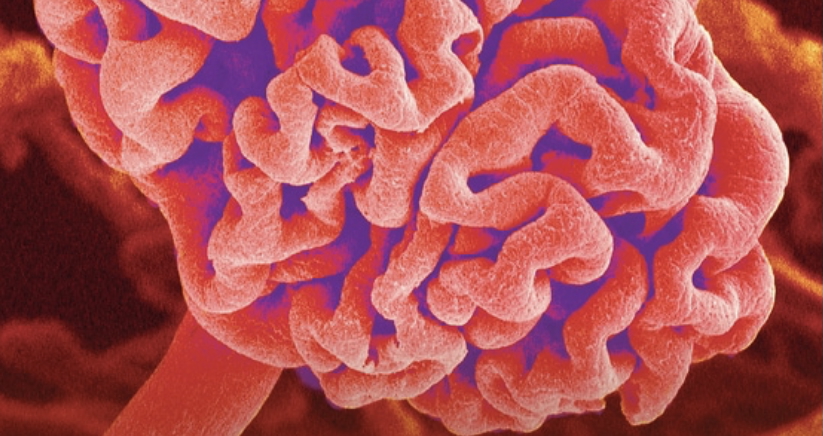
- Teacher: Duncan Parks
opportunity to hear research seminars from outside
scientists. Students enrolled in the course will
develop and present a research seminar of their
own. All students taking this course for credit
will be required to attend all seminar
presentations, both by outside speakers and by
their peers, and to participate in the
question-and-answer session after the seminar.
- Teacher: Greta Binford
- Teacher: Heidi Liere
- Teacher: Greta Binford
on cellular and molecular approaches. Electrical
signaling in excitable cells, the physiology and
biochemistry of synaptic transmission,
neuropharmacology. The biological bases of
learning, memory, and some neurological disorders.
Sensory systems and neuronal development.
Laboratory focus on student-designed projects.
Lecture and laboratory.
- Teacher: Tamily Weissman-Unni
- Teacher: Heidi Liere

- Teacher: Duncan Parks
- Teacher: Tamily Weissman-Unni
- Teacher: Duncan Parks
Advanced study of current issues in biology, as determined by student and/or faculty interest. May extend existing areas of the curriculum or
explore new subjects. Offering contingent on student interest and faculty availability.
- Teacher: Randall Long
Advanced study of current issues in biology, as
determined by student and/or faculty interest. May
extend existing areas of the curriculum or explore
new subjects. Offering contingent on student
interest and faculty availability. Lab component.
- Teacher: Emma Wear
- Teacher: Tamily Weissman-Unni
biological, cultural, and environmental factors.
Assessment and diagnosis of eating disorders,
appropriate levels of care and a thorough
overview of medical complications.
- Teacher: Bailey Benn
biological, cultural, and environmental factors.
Assessment and diagnosis of eating disorders,
appropriate levels of care and a thorough
overview of medical complications.
- Teacher: Dianne Lamberty Rogers
DISABILITY STUDIES AND UNIVERSAL DESIGN:
Every educator will encounter students who meet the criteria for disability within public education and grapple with how to successfully foster learning, equity and inclusion in diverse classrooms and schools. This online course, introduces Disability Studies in Education-- a liberation movement discipline distinct from Special Education-- that offers unique insight into these endeavors and proposes Universal Design as a guiding principle.
Disability Studies proposes that "disability" is contextualized within particular social, cultural and political environments according to the acceptable limits of human variability in those environments. This contrasts with the "medical, model," which positions disability as a deficit inherent to an individual, to be rehabilitated, remediated or cured. Contrasting these two different theoretical models helps us to explore the ideology that may underlie ableism, stigma and privilege. Our inquiry will include lived experience and counter culture narratives associated with various disability groups. We will conclude by investigating how we may employ the principle of Universal Design to create embracive learning environments where all students feel valued and empowered, as well as how we may work to dismantle systemic barriers to equity and inclusion within Education.
Disability Studies intersects with other critical disciplines such as Critical Race Studies, Feminist Studies and Gender Studies, all of which foreground lived experience and de-center dominant narratives that cast particular individuals or groups as the "Other." These intersections are also considered in the course, shedding light on the persistent over-representation of minorities in Special Education and exploring whether disablement may function as a mechanism of marginalization for various groups.
Through assigned readings and communal online discussion among professional peers, we will investigate the philosophical, pedagogical, and pragmatic approaches to dis/ability, equity, and, inclusion in education. Teachers, counselors, administrators, psychologists, specialists and academics should all emerge from this course with the historical context, intellectual framework, and practical skills to deepen their professional practice and help promote social justice-both within the sphere of education and in the wider world.
- Teacher: Denise Herrenbruck

- Teacher: Barbara Balko

- Teacher: Nikolaus Loening
architecture, art, history, literature,
philosophy, and religion. Special emphasis on the
core values of ancient Greek culture, and how
these compare and contrast to our own.
- Teacher: Robert Kugler
- Teacher: Gordon Kelly
- Teacher: Gordon Kelly
- Teacher: Daniel Kimmel
- Teacher: Gordon Kelly
- Teacher: Maureen Healy
This course examines these and other questions about the relationship between healing, spirituality, and culture by reading and discussing scholarship from the fields of religious studies, anthropology, sociology, and history. We will look at examples from a variety cultural contexts including ancient Greek, Chinese and Native American traditions. We will pay particular attention to the way in which dominant frameworks of authority for explaining sickness and health have changed over the last 200 years in the West, leading us to inquire into the contemporary appeal of “alternative medicine” in Portland in 2020.
- Teacher: Jessica Starling
- Teacher: Jessica Starling
- Teacher: Gordon Kelly

In this section of Words, we will critically examine the subject of religion in Japan. Japan is variously described as either the most secular or the most spiritual country on earth. Such observations should prompt us to critically reflect on what we mean by words like “religious,” “spiritual” or “secular.”
In this course, we will survey diverse examples of religion in Japan, including a prehistoric shaman-queen, a shape-shifting dragon-girl from an Indian sutra, a hidden Christian community, an apocalyptic healing cult, an ascetic monk, a Buddhist mortician, a tour-bus pilgrimage, and an anime film. As we examine the intersection of Japanese religion with gender, statecraft, capitalism, and national identity, we will draw sources and analytical insights from the fields of history, sociology, anthropology and religious studies.
- Teacher: Jessica Starling

- Teacher: Bruce Podobnik
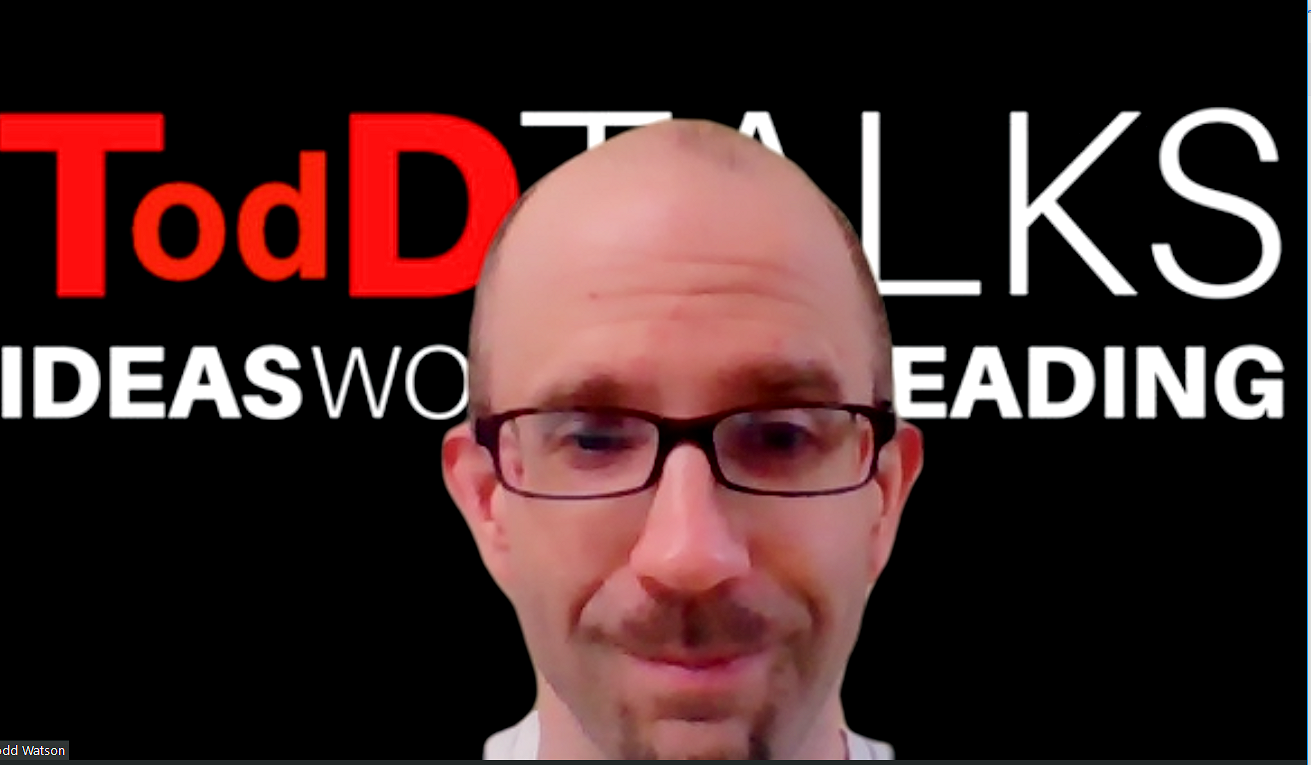
This section will focus on one of the key features of being a literate and active member of a democracy: the ability to evaluate and make arguments with data. Using the lens of psychology and neuroscience, we will explore ways to use simple, low tech experimental techniques and open-access statistical software and data sets to answer questions both big and small about the world around us. More broadly, will consider how quantitative reasoning can shape and strengthen arguments in academic research, public policy, literature, and your latest TikTok post.
- Teacher: Todd Watson

This course asks the central question: how might we understand the complicated relationship between our understanding of the “ideal” city, our experiences in cities, and the numbers and images we use to describe the City? We will explore the ways in which statistics, maps, and images may corroborate or belie what we understand to be true of lived experience within urban spaces. Our course considers the city a living and dynamic organism, both a human construct and ever-present agent subtly shaping social performance. The curriculum will highlight diverse academic disciplines, ranging from art history to sociology, philosophy to urban planning. Participating students should be interested in working creatively with fellow classmates and making occasional off-campus site visits. Prior experience with statistics and mapping is not required or expected.
- Teacher: Read McFaddin

This course asks the central question: how might we understand the complicated relationship between our understanding of the “ideal” city, our experiences in cities, and the numbers and images we use to describe the City? We will explore the ways in which statistics, maps, and images may corroborate or belie what we understand to be true of lived experience within urban spaces. Our course considers the city a living and dynamic organism, both a human construct and ever-present agent subtly shaping social performance. The curriculum will highlight diverse academic disciplines, ranging from art history to sociology, philosophy to urban planning. Participating students should be interested in working creatively with fellow classmates and making occasional off-campus site visits. Prior experience with statistics and mapping is not required or expected.
- Teacher: Read McFaddin
- Designer: Justin Counts
- Designer: Carol Doyle
- Designer: Morgan Grether
- Designer: Amy Rees
biological, cultural, and environmental factors.
Assessment and diagnosis of eating disorders,
appropriate levels of care and a thorough
overview of medical complications.
- Teacher: Bailey Benn
biological, cultural, and environmental factors.
Assessment and diagnosis of eating disorders,
appropriate levels of care and a thorough
overview of medical complications.
- Teacher: Dianne Lamberty Rogers
- Teacher: Thomas Doherty
- Teacher: Christopher Russo
- Teacher: Carol Doyle
- Teacher: Christopher Russo
- Teacher: Mary Beckman
- Teacher: Stella Kerl-Mcclain
- Teacher: Stella Kerl-Mcclain
- Teacher: Justin Henderson
- Teacher: Stella Kerl-Mcclain
- Teacher: Stella Kerl-Mcclain
- Teacher: Stella Kerl-Mcclain
- Teacher: Mark Douglass
- Teacher: Stella Kerl-Mcclain
mental health and the natural environment and
explores ways in which psychological knowledge and
practices can contribute to the solution of
environmental problems. This course provides an
introduction to ecopsychology theory, findings and practices, and a survey of related research findings in environmental and conservation
psychology. Topics include health benefits
of natural settings, the development of
environmental identities, and promotion of
conservation behaviors. Students will be guided
toward self-reflection regarding their own
environmental identity, their motivations for
integrating environmental approaches into
their professional work, and ways to integrate ecopsychology
into their existing theory and practice base.
- Teacher: Thomas Doherty
- Teacher: Ryan Francis
- Teacher: Thomas Doherty
- Teacher: Thomas Doherty
- Teacher: Meg Jeske
- Teacher: Meg Jeske
- Teacher: Charles Dickerman
- Teacher: Stella Kerl-Mcclain
- Teacher: Stella Kerl-Mcclain
- Teacher: Cort Dorn-Medeiros
- Teacher: Meg Jeske
- Teacher: Meg Jeske
- Teacher: Meg Jeske
- Teacher: Meg Jeske
- Teacher: Cort Dorn-Medeiros
- Teacher: Cort Dorn-Medeiros
- Teacher: Cort Dorn-Medeiros
- Teacher: Meg Jeske
- Teacher: Justin Henderson
- Teacher: Erin Headley
Dialectical Behavior Therapy (DBT) is a cognitive behavioral treatment originally developed by Marsha Linehan (1993) to treat chronically suicidal individuals diagnosed with borderline personality disorder (BPD). In addition to being the treatment of choice for this vulnerable population, DBT has shown effectiveness in treating a wide range of other disorders such as substance use and eating disorders, depression, and post-traumatic stress disorder (PTSD). This course serves as a preliminary introduction to the principles and theories underlying DBT, to assessment of clients’ problematic behaviors, and to the four main behavioral skill sets in DBT: emotion regulation, core mindfulness, distress tolerance and acceptance, and interpersonal effectiveness.
- Teacher: Meg Jeske
- Teacher: Meg Jeske
- Teacher: Stella Kerl-Mcclain
- Teacher: Carol Doyle
- Teacher: Christopher Russo
- Teacher: Thomas Doherty
Summer 2016
CPSY 598 Topics in Applied Ecopsychology: Nature-Based
Therapy Retreat
Through field-based experiences, students will gain first-hand
experience in outdoor and nature based counseling and
psychotherapy contexts including horticultural therapy, urban
walking and outdoor therapy, equine-assisted therapy,
nature-based mindfulness exercises and group retreat work. The
course includes one night of overnight camping at an equine
therapy retreat center with facilities. Food and group equipment
is provided. No previous experience is necessary. Students will
receive a personal gear and clothing list before the course.
CPSY 598-01 is crosslisted with CECP 898-01.
CPSY 598-01 course dates are 5/14 and 5/15. Final assignments
due by 6/2.
- Teacher: Thomas Doherty
- Teacher: Carmen Knudson-Martin
- Teacher: Carmen Knudson-Martin
This page is a listing of current reading materials for Counseling Psychology courses. If an instructor does not have a Moodle course of their own, this page will have any supplementary readings that aren't in the assigned textbook(s).
- Teacher: Carol Doyle
- Teacher: Juleen Norling
- Teacher: Meg Jeske
psychology. Students may obtain a course
description from the department office or website.
- Teacher: Justin Henderson
- Teacher: Chelsey Torgerson
psychology. Students may obtain a course
description from the department office or website.
- Teacher: Justin Henderson
- Teacher: Justin Henderson
- Teacher: Meg Jeske
- Teacher: Meg Jeske
Special topics in counseling, therapy and school
psychology. Students may obtain a course
description from the department office or website.
- Teacher: Renee Fitzpatrick
- Teacher: Meg Jeske
psychology. Students may obtain a course
description from the department office or website.
- Teacher: Meg Jeske
psychology. Students may obtain a course
description from the department office or website.
- Teacher: Meg Jeske
- Teacher: Cort Dorn-Medeiros

psychology. Students may obtain a course
description from the department office or website.
- Teacher: Renee Fitzpatrick

- Teacher: Renee Fitzpatrick
- Teacher: Justin Henderson
- Teacher: Justin Henderson
psychology. Students may obtain a course
description from the department office or website.
- Teacher: Cort Dorn-Medeiros
psychology. Students may obtain a course
description from the department office or website.
- Teacher: Meg Jeske
- Teacher: Meg Jeske

Direct instruction and support for the process of, preparing a thesis and/or other research or grant, proposals. Includes both a colloquium and, individual consultations with a thesis chair (or,, if not writing a thesis, another faculty member)., The colloquium will focus on the refinement of, research questions, the specifics of research, design, and the Human Subjects in Research, application process. Consultations with thesis, committee chair or other faculty member will focus, on the development of a manuscript that clearly, details the purpose of the research, summarizes, relevant literature, and identifies the proposed, design and methodology for the research project.
- Teacher: Gaelan Harmon-Walker
- Teacher: Clifford Bekar
- Teacher: Clifford Bekar
the human-nature relationship and includes a
substantial body of evidence demonstrating the
physical and psychological benefits of interacting
with nature. A basic tenet of the field is that
our inner worlds and the outer world are
intimately connected. The need for nature still
resides in our bodies, minds, and spirit. From an
ecotherapy perspective, a central challenge of our
time is the integration of our connection with
nature with our scientific culture and our
technological selves. As such, ecotherapy has a
role to play in addressing such issues as the
decreased presence of nature in our lives; the
exponential growth of technology in daily living;
and the impact of global climate change. This
course guides students toward self-reflection
regarding their environmental identity and their
"sense of place". It also explores the motivations
for integrating ecological perspectives into
academic and professional work.
- Teacher: Ali Archer
the human-nature relationship and includes a
substantial body of evidence demonstrating the
physical and psychological benefits of interacting
with nature. A basic tenet of the field is that
our inner worlds and the outer world are
intimately connected. The need for nature still
resides in our bodies, minds, and spirit. From an
ecotherapy perspective, a central challenge of our
time is the integration of our connection with
nature with our scientific culture and our
technological selves. As such, ecotherapy has a
role to play in addressing such issues as the
decreased presence of nature in our lives; the
exponential growth of technology in daily living;
and the impact of global climate change. This
course guides students toward self-reflection
regarding their environmental identity and their
"sense of place". It also explores the motivations
for integrating ecological perspectives into
academic and professional work.
- Teacher: Ali Archer
- Teacher: Ali Archer
- Teacher: Christopher Russo
- Teacher: Carol Doyle
This course provides an introduction to
ecopsychological theory and surveys research that
supports the theoretical foundations of nature
based practices found in Ecotherapy, Wilderness
Therapy, and other Nature-based therapies. The
course also surveys related concepts, findings and
practices in psychology and counseling/therapy
that provide a foundation for conservation and
sustainability work, environmental education,
advocacy, and activism.
- Teacher: Carol Doyle
- Teacher: Abby Joffe-Aalto
- Teacher: Katheryne Lewis
ecopsychology concepts and nature based practices
in the context of a multi-day outdoor experience.
Topics include backcountry safety, outdoor
leadership, wilderness philosophy and
conservation, benefits of immersion in natural
settings and retreats from modern technologies;
multicultural rites of passage; and techniques for
counseling/therapy in the outdoors. The course
typically features an off-campus weeklong or
multi-weekend residential format including tent
camping along with other activities such as day
and/or overnight hiking; mindfulness and team
building exercises; and other nature based and/or
adventure based activities. Outdoor experience not
required. There is a course fee.
- Teacher: Katheryne Lewis
- Teacher: Christopher Russo
This course provides an opportunity to explore
ecopsychology concepts and nature based practices
in the context of a multi-day outdoor experience.
Topics include backcountry safety, outdoor
leadership, wilderness philosophy and
conservation, benefits of immersion in natural
settings and retreats from modern technologies;
multicultural rites of passage; and techniques for
counseling/therapy in the outdoors. The course
typically features an off-campus weeklong or
multi-weekend residential format including tent
camping along with other activities such as day
and/or overnight hiking; mindfulness and team
building exercises; and other nature based and/or
adventure based activities. Outdoor experience not
required. There is a course fee.
- Teacher: Abby Joffe-Aalto
- Teacher: Katheryne Lewis
- Teacher: Pilar Hernandez-Wolfe
- Teacher: Lina Darwich
- Teacher: Hassan Dornayi
the systems and processes that ensure a healthy
and effective district. Leaders need to be
prepared to cultivate the equitable use of
educational resources through establishing
collaborative and inclusive procedures,
guidelines, norms, and policies. Part of this work
involves the ability to assess district needs and
priorities and then equitably allocate
opportunities and resources across the district
according to these needs. Leaders need to
understand that equitable resource allocation of
materials, fiscal resources, personnel,
technology, interventions, time, and high-quality
teachers, leaders, and supporting staff all
contribute to a healthy and effective district
culture. Leaders must be equipped with the skills
to use data to evaluate systems for inequities and
then work collaboratively to align and improve
these systems so that they are coherent, cohesive,
and focused on supporting the learning,
improvement, and well-being of students and staff.
- Teacher: Hassan Dornayi
the systems and processes that ensure a healthy
and effective district. Leaders need to be
prepared to cultivate the equitable use of
educational resources through establishing
collaborative and inclusive procedures,
guidelines, norms, and policies. Part of this work
involves the ability to assess district needs and
priorities and then equitably allocate
opportunities and resources across the district
according to these needs. Leaders need to
understand that equitable resource allocation of
materials, fiscal resources, personnel,
technology, interventions, time, and high-quality
teachers, leaders, and supporting staff all
contribute to a healthy and effective district
culture. Leaders must be equipped with the skills
to use data to evaluate systems for inequities and
then work collaboratively to align and improve
these systems so that they are coherent, cohesive,
and focused on supporting the learning,
improvement, and well-being of students and staff.
- Teacher: Hassan Dornayi
- Teacher: Susan Rodriguez
- Teacher: Ken Struckmeier
This is an online course for administrators/school leaders who need credits toward their Continuing Administrator License (CAL) or other licensing requirements. It is a broad overview of the ever-changing technology landscape with a focus on using 21st Century Skills and Web 2.0 tools. Participants will receive hands-on experience using educational and management technologies directly tied to administrator tech standards. Participants will learn how to make informed decisions about technology while increasing their personal skills.
- Teacher: Tod Sloan
- Teacher: Rebecca Hyman
- Teacher: Rebecca Hyman
race, it is important that each of the sprinters
speedily covers their portion of the race. Equally
important is the fluidity of transferring
responsibility from one runner to the next, the
critical passing of the baton, or "pasar la
batuta". It is in this moment when all of the
effort given by one runner helps jump start their
teammate in a seamless fashion, or when the work
is abruptly halted because the hand off is faulty.
This critical transfer can define the outcome of
the race. The analogy of "pasar la batuta" well
articulates the responsibility educational leaders
in P-12 and higher education settings have for
fashioning a seamless transition for students to
navigate. As it stands, the movement between
primary and secondary education into postsecondary
education is disjointed. This course will explore
why the transition across the educational pipeline
is choppy, what factors need to be considered in
order to facilitate a smoother move, and the
opportunities for leaders to foster that change.
- Teacher: Emilio Solano
race, it is important that each of the sprinters
speedily covers their portion of the race. Equally
important is the fluidity of transferring
responsibility from one runner to the next, the
critical passing of the baton, or "pasar la
batuta". It is in this moment when all of the
effort given by one runner helps jump start their
teammate in a seamless fashion, or when the work
is abruptly halted because the hand off is faulty.
This critical transfer can define the outcome of
the race. The analogy of "pasar la batuta" well
articulates the responsibility educational leaders
in P-12 and higher education settings have for
fashioning a seamless transition for students to
navigate. As it stands, the movement between
primary and secondary education into postsecondary
education is disjointed. This course will explore
why the transition across the educational pipeline
is choppy, what factors need to be considered in
order to facilitate a smoother move, and the
opportunities for leaders to foster that change.
- Teacher: Emilio Solano
- Teacher: Emilio Solano
- Teacher: Educational Technology Administrator
- Teacher: Justin Counts
- Teacher: Educational Technology
discovery and engineering innovation. Experience
in mutualistic teaming, technology transfer,
product development, and marketing; opportunities
to learn and apply methods inherent in effectual
entrepreneurial activities. Team-based laboratory
projects focus on the process of technology
transfer (utilizing scientific research in
commercial product development).
- Teacher: Charis Asante-Agyei

activities, students learn about the parallel and
synergistic processes of scientific discovery and
engineering innovation. Open-ended projects give
students experience in mutualistic teaming,
technology transfer, product development, and
marketing, as well as opportunities to learn and
apply methods inherent in effectual
entrepreneurial activities. Team-based laboratory
projects focus on the process of technology
transfer (utilizing scientific research in
commercial product development).
- Teacher: Kellar Autumn
- Teacher: John Jansen
- Teacher: Andrea Hibbard
time, focusing primarily on the ecology, history,
management, and controversy surrounding Pacific
Northwest coniferous forests and comparing these
nearby forests with others across the globe.
Field-intensive, with one overnight and two
daylong forest excursions, and fieldwork in
forests adjacent to Lewis & Clark. Students will
gain skills in tree and forest measurement, a more
variegated understanding of our region's forested
landscape, an opportunity to engage firsthand with
people who approach these forests in differing
ways, and a group-sourced context via multiple
small-team projects on forests in other parts of
the world. Lectures; reading discussions; guest
panels; fieldwork and field trips; team projects.
- Teacher: James Proctor
- Teacher: James Proctor
Development of research topic, questions,
methodology. Development of annotated
bibliography, concept map, and draft thesis
outline. Weekly short writing assignments.
- Teacher: James Proctor
- Teacher: Erin Ocon
- Teacher: Maureen Ray
- Teacher: Alejandra Favela
- Teacher: Erin Ocon
- Teacher: Amber Tatge
- Teacher: Alejandra Favela
- Teacher: Erin Ocon
- Teacher: Amber Tatge
- Teacher: Shane Burchell
- Teacher: Nicole Hilton
- Teacher: Erin Ocon
- Teacher: Maureen Ray
- Teacher: Amber Tatge
This course is an exploration of the strategies, methodology, philosophy, and classroom organizational structure that have been found to benefit content and literacy outcomes for ELL (English language learner) students. Language experience, cooperative learning, and constructivist strategies are practices that will be examined and modeled during this course. Students will revisit first and second language acquisition, as well as sheltered instruction models, used to adapt curriculum for ELL students at all grade levels. The practices learned in this course ensure development of language proficiency by accessing content and cognitive language. Participants learn the use of authentic assessments that allow students to demonstrate learning in ways not dependent on high levels of English. Exploration of ELP (English Language Proficiency) standards and strategies will deepen student understanding of the relationship between oral language and content learning. Participants will experience a wide range of methodologies and reflect on how they impact student and teacher learning.
- Teacher: Erin Ocon
- Teacher: Amber Tatge
- Teacher: Yasin Tunc
- Teacher: Elizabeth Safran
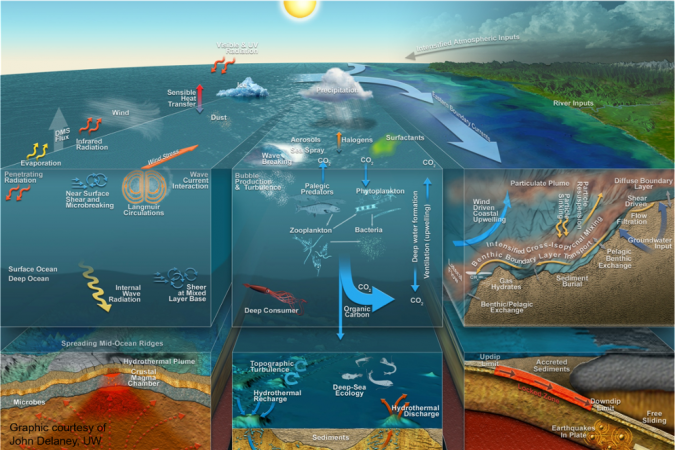
- Teacher: Jessica Kleiss
- Teacher: Rick Berman
- Teacher: Teresa McDowell
- Teacher: Mark Douglass
sexuality in connection with race, class, and
ethnicity in the United States. Investigation of
social and cultural ideas about difference and
equality in the past and present. Materials
include literature, film, memoir, poetry, feminist
philosophy, political tracts, and queer theory, as
well as classic and recent scholarly work in
history, sociology, economics, communication,
psychology, and other fields. Topics may include
mass media and consumer culture, work, law and
social policy, family, political activism and
social movements, sexuality and the body, public
health, medical research, violence, and theories
of privilege and oppression.
- Teacher: Andrea Hibbard
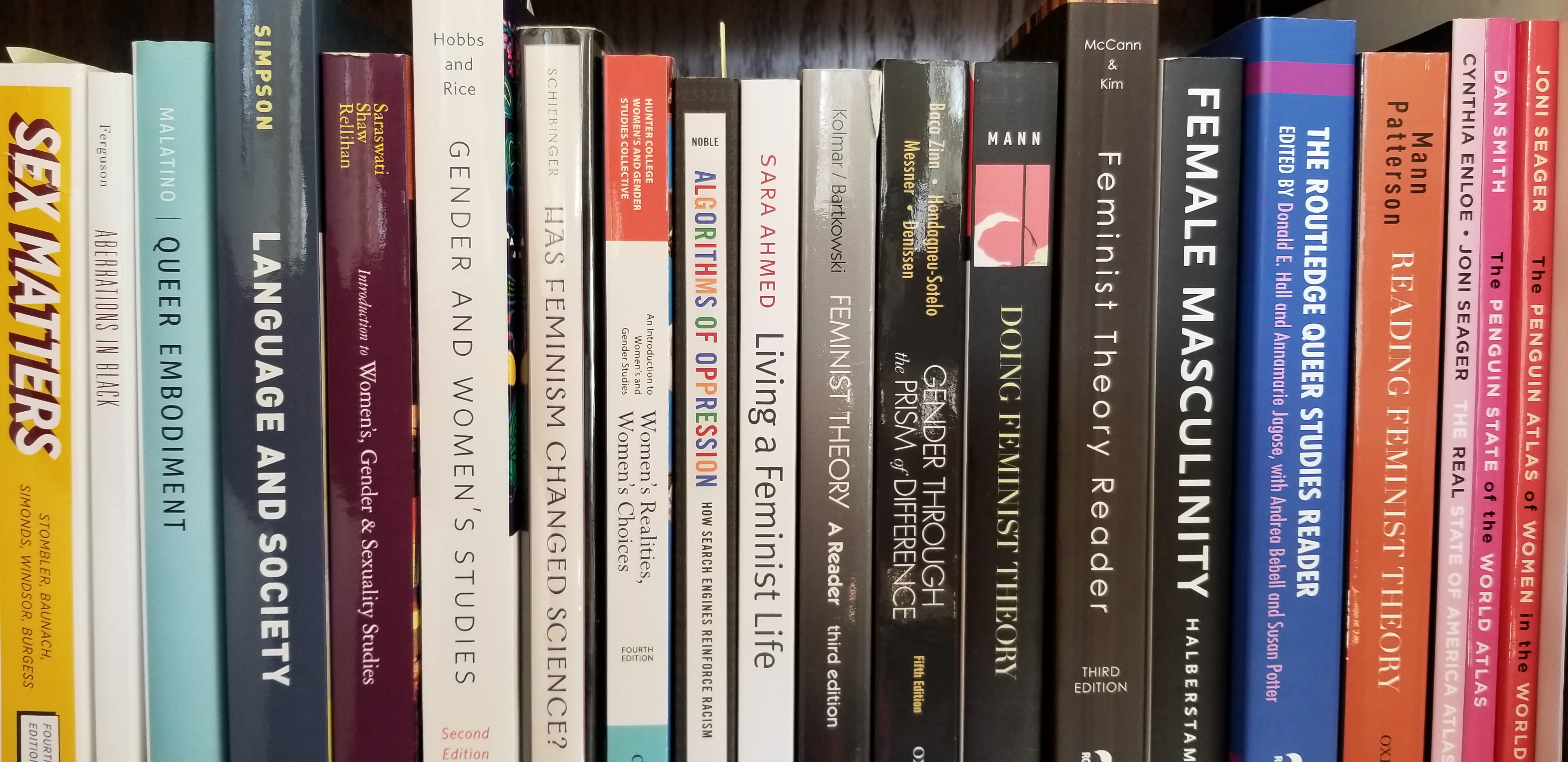
sexuality in connection with race, class, and
ethnicity in the United States. Investigation of
social and cultural ideas about difference and
equality in the past and present. Materials
include literature, film, memoir, poetry, feminist
philosophy, political tracts, and queer theory, as
well as classic and recent scholarly work in
history, sociology, economics, communication,
psychology, and other fields. Topics may include
mass media and consumer culture, work, law and
social policy, family, political activism and
social movements, sexuality and the body, public
health, medical research, violence, and theories
of privilege and oppression.
- Teacher: Kimberly Brodkin
- Teacher: Andrea Hibbard

- Teacher: Kimberly Brodkin
- Teacher: Andrea Hibbard
- Teacher: Andrea Hibbard
- Teacher: Andrea Hibbard

- Teacher: Kimberly Brodkin
- Teacher: Kimberly Brodkin
- Teacher: Andrea Hibbard
- Teacher: Kimberly Brodkin
- Teacher: Kimberly Brodkin
- Teacher: Kimberly Brodkin
- Teacher: Kimberly Brodkin
historically constituted in different times and
places. Theoretical developments in the
anthropology of gender. Cross-cultural exploration
using examples from a wide range of societies,
past and present. The relationship between
cultural definitions of gender and the social
experience of women, men, and alternative gender
roles, such as the Native American two-spirits,
the hijra of India, and global perspectives on
contemporary transgender experiences.
- Teacher: Sidra Kamran
Fall 2021 - Gender Studies
231 Genders and Sexualities in a Global Perspective
Course Description: This is a feminist anthropological approach to the study of gender and sexuality. We will read some text that take a cross-disciplinary approach within the social sciences; however, this is not a general survey course. Our approach to reading emphasizes comprehension, analysis and critique, in that order. The course pace is slow - moderate.
The course has three aims/trajectories. First, it provides a historiography of studying social difference within anthropology. Anthropologists acknowledge the changing nature of culture, society, and nation. Some material will be dated. Some is not. We are looking at how theory, debates and analyses around gender and sexuality have developed/is changing over time in the discipline and within different socio-cultural settings. The second aim picks up from there. In addition to textbooks, we will read ethnographic research article and ethnographic texts that provide historical and contemporaneous descriptions of gender identity and sexual expressions in different socio-cultural settings. Third, material from popular sources will give us respite from the academic voice.
- Teacher: Kim Cameron-Dominguez
- Teacher: Kim Cameron-Dominguez
- Teacher: Sidra Kamran
- Teacher: Kim Cameron-Dominguez
- Teacher: Elizabeth Safran
- Teacher: Jessica Kleiss
- Teacher: Jessica Kleiss
- Teacher: Carlye Peterson
- Teacher: Elizabeth Safran
- Teacher: Elizabeth Safran
A reference desk and discussion space for Grad School faculty.
- Teacher: Miranda Carney-Morris
- Teacher: Maia Penchansky
- Teacher: Llew Richards
- Teacher: Patrick Ryall
- Teacher: Elizabeth Young
A reference desk and discussion space for Grad School staff.
- Coordinator: Miranda Carney-Morris
- Coordinator: Maia Penchansky
- Coordinator: Marily Quesnel
- Coordinator: Llew Richards
- Coordinator: Brad Wilkin
- Coordinator: Elizabeth Young

- Teacher: Susan Glosser
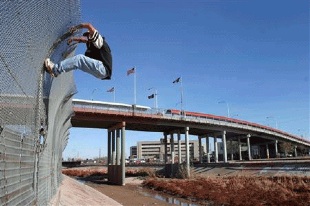
As well as studying the basic political/economic history of the border, we will explore the impact of the border on the construction of racial, national, gender and class identities. Thus, we will be seeking to understand what the border and the borderlands can teach us about ethnic and transnational relations more generally. We begin in the sixteenth century when this region was being settled by Spaniards moving north from New Spain to highlight the continuities between the colonial and national eras. However, we will spend most of our time examining the nineteenth and twentieth centuries when the US-Mexico border came into existence. Themes we will explore include race relations, capitalist development, ethnic rebellion, transculturation, migration, gender, cross-border organizing, and postmodern transborder communities.
- Teacher: Elliott Young
- Teacher: Blythe Knott
- Teacher: Jolina Ruckert
- Teacher: Nicole Schneider
- Teacher: Thomas Schoeneman
- Teacher: Kaitlin Sommerfeld
- Teacher: Benjamin Klash

- Teacher: Lisa Benjamin

- Teacher: Lisa Benjamin

- Teacher: Lisa Benjamin

- Teacher: Lisa Benjamin
- Teacher: Devra Hermosilla
- Teacher: Devra Hermosilla
of how to start, operate, and manage your legal
practice - with a focus on law firm and solo
practice, while also incorporating other practice
settings. Topics explored include: understanding
practice fundamentals, law practice as a business,
law firm structures and logistics, financial
management, timekeeping, billing, and trust
accounts, marketing plans, client management,
human resources, practice tools and technology,
issues surrounding professionalism and reputation
management, common ethical issues and obligations,
key resources for Oregon attorneys, and the basics
of risk management and professional liability.
Students will explore course topics by researching
and drafting interim assignments and a small
firm/solo business practice plan, which will be
submitted at the end of the course. Class
participation individually and in groups is
strongly encouraged. While particularly relevant
to students planning on a career in small firm or
solo practice, this course will benefit any new
attorney.
- Teacher: Devra Hermosilla
- Teacher: Devra Hermosilla

The Lewis & Clark Community Counseling Center is a clinical training facility for graduate students completing degree programs in the Department of Counseling Psychology. Student-trainees work under faculty supervision to provide therapy services to clients from Oregon and Washington area. Lewis & Clark faculty instructs and supervises trainees in practicum and internship courses at the Center.
The Center offers individual, couples, family, and group therapy to address a broad range of mental health, addiction/substance use, and relational concerns. Additionally, the center offers outreach and consultation services including workshops and seminars. Clients are generally from the community at large.- Teacher: LC Community Counseling Center
- Teacher: Nori Gruber
- Teacher: Justin Henderson
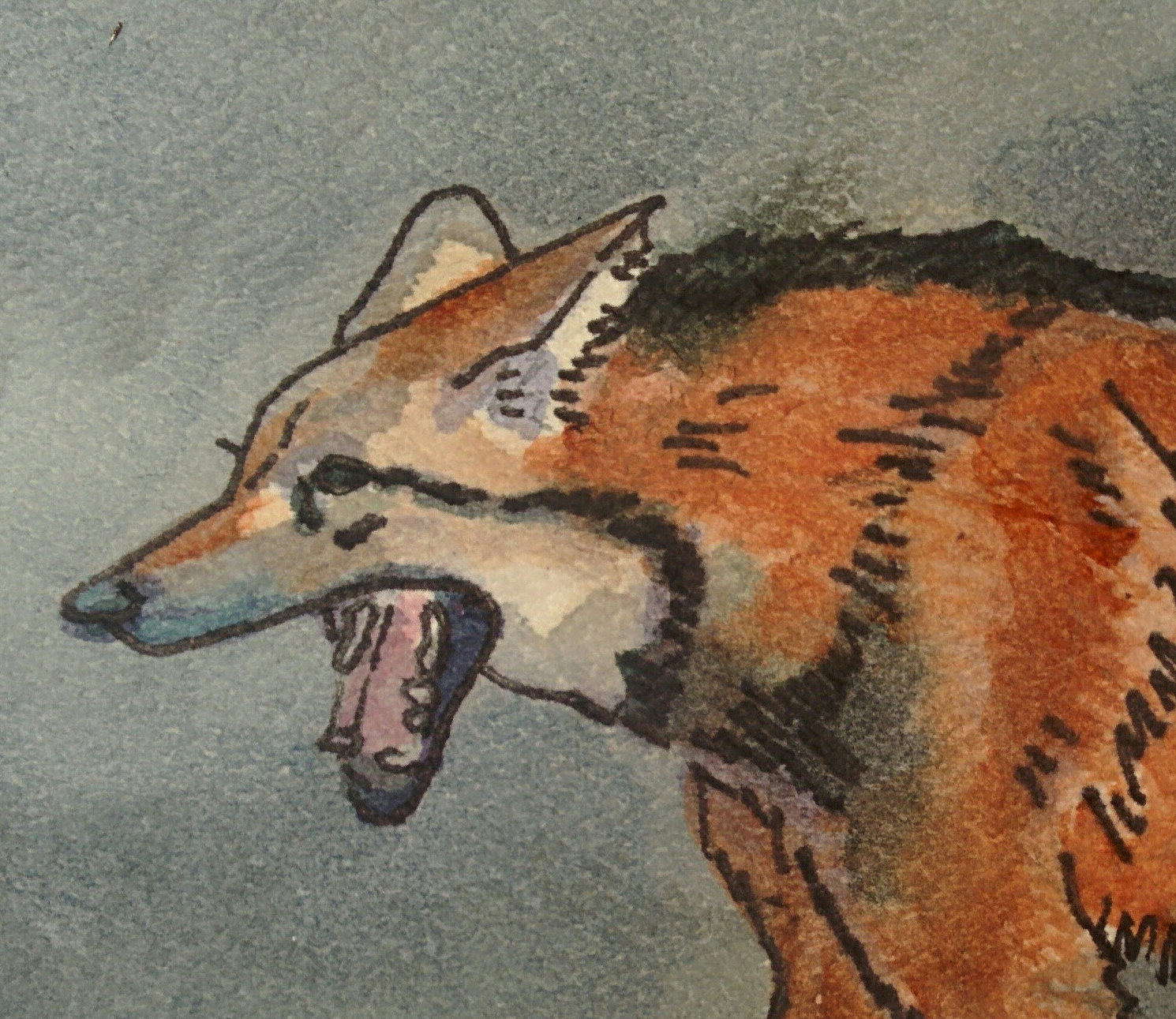
- Teacher: Tracy Burkhard

- Teacher: Tracy Burkhard
- Teacher: Lana Kim
- Teacher: Lana Kim
- Teacher: Lana Kim
- Teacher: Lana Kim
- Teacher: Lana Kim
issues in the practice of MCFT and includes an
introduction to pharmacology. Emphasis is on
understanding medical issues in family context
and collaborating with other health
professionals, as well as an examination of the
sociopolitical context in which psychotropic drug
regimens are developed, researched, and
prescribed.
- Teacher: Lana Kim
- Teacher: Lana Kim
- Teacher: Lana Kim
- Teacher: Lana Kim
issues in the practice of MCFT and includes an
introduction to pharmacology. Emphasis is on
understanding medical issues in family context
and collaborating with other health
professionals, as well as an examination of the
sociopolitical context in which psychotropic drug
regimens are developed, researched, and
prescribed.
- Teacher: Lana Kim
- Teacher: Lana Kim
issues in the practice of MCFT and includes an
introduction to pharmacology. Emphasis is on
understanding medical issues in family context
and collaborating with other health
professionals, as well as an examination of the
sociopolitical context in which psychotropic drug
regimens are developed, researched, and
prescribed.
- Teacher: Lana Kim
- Teacher: Lana Kim

related to research design and methodology that
systems/relational practitioners need to become
critical evaluators of research and prepare for
conducting research in their own practices, with
an emphasis is on becoming an informed consumer of
research and evidence-based practice. Students
learn to apply research with critical awareness of
the links between the process of inquiry,
construction of knowledge, and cultural equity.
Focus is on understanding each component of the
research process, qualitative and quantitative
designs, program evaluations, measurement issues
and data analysis as well as the legal, ethical,
and contextual issues involved in the conduct of
clinical research and program evaluation.
- Teacher: Joslyn Armstrong

related to research design and methodology that
systems/relational practitioners need to become
critical evaluators of research and prepare for
conducting research in their own practices, with
an emphasis is on becoming an informed consumer of
research and evidence-based practice. Students
learn to apply research with critical awareness of
the links between the process of inquiry,
construction of knowledge, and cultural equity.
Focus is on understanding each component of the
research process, qualitative and quantitative
designs, program evaluations, measurement issues
and data analysis as well as the legal, ethical,
and contextual issues involved in the conduct of
clinical research and program evaluation.
- Teacher: Joslyn Armstrong

related to research design and methodology that
systems/relational practitioners need to become
critical evaluators of research and prepare for
conducting research in their own practices, with
an emphasis is on becoming an informed consumer of
research and evidence-based practice. Students
learn to apply research with critical awareness of
the links between the process of inquiry,
construction of knowledge, and cultural equity.
Focus is on understanding each component of the
research process, qualitative and quantitative
designs, program evaluations, measurement issues
and data analysis as well as the legal, ethical,
and contextual issues involved in the conduct of
clinical research and program evaluation.
- Teacher: Joslyn Armstrong
- Teacher: Carmen Knudson-Martin
- Teacher: Carmen Knudson-Martin
- Teacher: Stephanie Oliver

- Teacher: Renee Fitzpatrick
- Teacher: Suzanne Dilitto
- Teacher: Tori Morrison
- Teacher: Carmen Knudson-Martin
- Teacher: Carmen Knudson-Martin
- Teacher: Stephanie Oliver
- Teacher: Stephanie Oliver
- Teacher: Stephanie Oliver
- Teacher: Stephanie Oliver
relative to assessment, research, and treatment of
couples, with an emphasis on promoting relational
justice through addressing power/privilege and the
links between neurobiology, emotion, societal
context, and couple interaction. Students develop
competencies to work with a wide range of couples
across the life span and diverse sociocultural
contexts, with attention to issues such as
intimacy, conflict, co-parenting, spirituality,
infidelity, divorce, loss, and illness. Couple
therapy for the treatment of trauma and mental
health disorders will also be addressed.
- Teacher: Karen Neri
- Teacher: Stephanie Oliver
- Teacher: Meghan O'Connor
- Teacher: Stella Kerl-Mcclain
5 for diagnosing mental and emotional disorders.
Limits and weaknesses of these
approaches-especially with regard to cultural
differences-and alternatives to them. How to use
these systems effectively in the context of
person-centered, psychosocial, and systemic
interventions, and in culturally diverse
environments. Current knowledge, theory, and
issues regarding selected disorders. Use of
technology-based research tools to secure and
evaluate contemporary knowledge.
- Teacher: Stella Kerl-Mcclain

- Teacher: Renee Fitzpatrick
5 for diagnosing mental and emotional disorders.
Limits and weaknesses of these
approaches-especially with regard to cultural
differences-and alternatives to them. How to use
these systems effectively in the context of
person-centered, psychosocial, and systemic
interventions, and in culturally diverse
environments. Current knowledge, theory, and
issues regarding selected disorders. Use of
technology-based research tools to secure and
evaluate contemporary knowledge.
- Teacher: Jordyn Pasiak
- Teacher: Gregory Kaplan
- Teacher: Justin Henderson
- Teacher: Justin Henderson
- Teacher: Justin Henderson
- Teacher: Justin Henderson
- Teacher: Justin Henderson
- Teacher: Justin Henderson
- Teacher: Justin Henderson

treatment of mental, emotional, substance abuse,
and addictive disorders in late adolescence and
adulthood. Covers adjustment, mood, anxiety,
psychotic, dissociative, impulse, sexual,
personality, and addictive disorders, including
gambling and eating disorders. Topics include
multicultural, interpersonal, and relationship
factors; evidence-based treatments; and
information technology research tools. Emphasis is
on planning comprehensive, multifaceted treatment
interventions.
- Teacher: Justin Henderson
- Teacher: Kate Madden
- Teacher: Justin Henderson
- Teacher: Justin Henderson
- Teacher: Justin Henderson
- Teacher: Justin Henderson
- Teacher: Stella Kerl-Mcclain
- Teacher: Renee Fitzpatrick
- Teacher: Kate Madden
- Teacher: Krystal Marcinkiewicz
- Teacher: Mark Douglass
- Teacher: Adam Rodriguez
- Teacher: Justin Henderson
- Teacher: Laura Nichols
- Teacher: Laura Nichols
- Teacher: Mark Douglass
treatment of mental, emotional, substance abuse,
and addictive disorders in late adolescence and
adulthood. Covers adjustment, mood, anxiety,
psychotic, dissociative, impulse, sexual,
personality, and addictive disorders, including
gambling and eating disorders. Topics include
multicultural, interpersonal, and relationship
factors; evidence-based treatments; and
information technology research tools. Emphasis is
on planning comprehensive, multifaceted treatment
interventions.
- Teacher: Krystal Marcinkiewicz
- Teacher: Kate Madden
treatment of mental, emotional, substance abuse,
and addictive disorders in late adolescence and
adulthood. Covers adjustment, mood, anxiety,
psychotic, dissociative, impulse, sexual,
personality, and addictive disorders, including
gambling and eating disorders. Topics include
multicultural, interpersonal, and relationship
factors; evidence-based treatments; and
information technology research tools. Emphasis is
on planning comprehensive, multifaceted treatment
interventions.
- Teacher: Mark Douglass
treatment of mental, emotional, substance abuse,
and addictive disorders in late adolescence and
adulthood. Covers adjustment, mood, anxiety,
psychotic, dissociative, impulse, sexual,
personality, and addictive disorders, including
gambling and eating disorders. Topics include
multicultural, interpersonal, and relationship
factors; evidence-based treatments; and
information technology research tools. Emphasis is
on planning comprehensive, multifaceted treatment
interventions.
- Teacher: Renee Fitzpatrick
- Teacher: Charles Dickerman
- Teacher: Charles Dickerman
- Teacher: Wendy Esther
- Teacher: Wendy Esther
of the field of addiction counseling and the
impact of addiction on child, adolescent, and
adult populations. The course will summarize key
points drawn from the following areas: the
American experience with addiction and recovery,
theoretical explanations for understanding
addiction and dual diagnosis, basic pharmacology
and neuroscience, and assessment and treatment
issues specific to dual diagnosis and addiction
counseling.
- Teacher: Raelynn Freden
- Teacher: Charles Dickerman
- Teacher: Charles Dickerman
- Teacher: Mark Douglass
- Teacher: Wendy Esther
- Teacher: Raelynn Freden
of the field of addiction counseling and the
impact of addiction on child, adolescent, and
adult populations. The course will summarize key
points drawn from the following areas: the
American experience with addiction and recovery,
theoretical explanations for understanding
addiction and dual diagnosis, basic pharmacology
and neuroscience, and assessment and treatment
issues specific to dual diagnosis and addiction
counseling.
- Teacher: Jeffrey Christensen
- Teacher: Charles Dickerman
in school, clinical, and applied settings.
Addresses psychometric concepts such as validity,
reliability, norms, and score interpretation.
Surveys intelligence, personality, career,
interest, aptitude, and achievement tests and
reviews alternative methods of assessing
competence and person-situation interactions.
Contemporary issues such as the validity of
instruments for diverse populations and the impact
of technology on assessment are discussed.
- Teacher: Krystal Marcinkiewicz
- Teacher: Jeffrey Christensen
- Teacher: Jeffrey Christensen
- Teacher: Leigh Anne Scherer
- Teacher: Jeffrey Christensen
- Teacher: Jeffrey Christensen
- Teacher: Jeffrey Christensen
- Teacher: Jeffrey Christensen
- Teacher: Tyler Case
- Teacher: Jeffrey Christensen
- Teacher: Jeffrey Christensen
- Teacher: Jeffrey Christensen
- Teacher: Krystal Marcinkiewicz
- Teacher: Jeffrey Christensen
in school, clinical, and applied settings.
Addresses psychometric concepts such as validity,
reliability, norms, and score interpretation.
Surveys intelligence, personality, career,
interest, aptitude, and achievement tests and
reviews alternative methods of assessing
competence and person-situation interactions.
Contemporary issues such as the validity of
instruments for diverse populations and the impact
of technology on assessment are discussed.
- Teacher: Krystal Marcinkiewicz
- Teacher: Jeffrey Christensen
- Teacher: Justin Henderson
- Teacher: Jeffrey Christensen
- Teacher: Jeffrey Christensen
in school, clinical, and applied settings.
Addresses psychometric concepts such as validity,
reliability, norms, and score interpretation.
Surveys intelligence, personality, career,
interest, aptitude, and achievement tests and
reviews alternative methods of assessing
competence and person-situation interactions.
Contemporary issues such as the validity of
instruments for diverse populations and the impact
of technology on assessment are discussed.
- Teacher: Antonia Mueller
- Teacher: Gracen Tichelaar
- Teacher: Jeffrey Christensen
in school, clinical, and applied settings.
Addresses psychometric concepts such as validity,
reliability, norms, and score interpretation.
Surveys intelligence, personality, career,
interest, aptitude, and achievement tests and
reviews alternative methods of assessing
competence and person-situation interactions.
Contemporary issues such as the validity of
instruments for diverse populations and the impact
of technology on assessment are discussed.
- Teacher: Jeffrey Christensen
- Teacher: Krystal Marcinkiewicz
- Teacher: Gracen Tichelaar
- Teacher: Jeffrey Christensen
- Teacher: Alexia Deleon
- Teacher: Mark Douglass
- Teacher: Mark Douglass
- Teacher: Mark Douglass

Major drugs and classes of abused substances.
Mechanisms of action in the brain, patterns of
physiological response in abuse, addiction, and
recovery. Impact on brain function, cognition,
emotions, behavior, and social effects.
Pharmacological adjuncts to detoxification and
treatment.
- Teacher: Justin Henderson
- Teacher: Kayla Carrar
- Teacher: Justin Henderson
Major drugs and classes of abused substances.
Mechanisms of action in the brain, patterns of
physiological response in abuse, addiction, and
recovery. Impact on brain function, cognition,
emotions, behavior, and social effects.
Pharmacological adjuncts to detoxification and
treatment.
- Teacher: Mark Douglass
Major drugs and classes of abused substances.
Mechanisms of action in the brain, patterns of
physiological response in abuse, addiction, and
recovery. Impact on brain function, cognition,
emotions, behavior, and social effects.
Pharmacological adjuncts to detoxification and
treatment.
- Teacher: Mark Douglass
from around the world with a special focus on the
Andes, Ireland, Indonesia, Ghana, and India.
Drawing on historical and visual sources,
recordings, and contemporary ethnography, the
course develops interpretive skill sets for
analyzing the sound structures, performance
contexts, and cultural significance of music in
rituals, festivals, politics, schools, recording
studios, cinema, the internet, and global stages.
In addition to learning about key topics in the
field of ethnomusicology, we engage with
traditions firsthand through an ethnographic
assignment in Portland and a weekly workshop with
performance faculty on campus. Organized into
three small-group sessions, the workshops
introduce music and dance from Indonesia, Ghana,
Zimbabwe, Spain, Latin America, and/or North
India. Specific content may change from year to
year.
- Teacher: Erica Jensen
- Teacher: Kaley Mason
- Teacher: Kaley Mason
- Teacher: Alexander Addy
- Teacher: Julia Banzi
- Teacher: Erica Jensen
- Teacher: Kaley Mason
- Teacher: Michael Stirling
- Teacher: Justin Counts
- Teacher: Kaley Mason
- Teacher: Rebecca Smith
- Teacher: Freddy Vilches
- Teacher: Alexander Addy
- Teacher: Julia Banzi
- Teacher: Erica Jensen
- Teacher: Kaley Mason
- Teacher: Freddy Vilches
- Teacher: Julia Banzi
- Teacher: Mindy Johnston
- Teacher: Kaley Mason
- Teacher: Freddy Vilches
- Teacher: Kaley Mason
doing ethnographic fieldwork in Portland music
scenes. Topics unfold over three stages. First, a
prefield introduction to research design,
politics, and ethics. Second, an infield focus on
skill sets for participating in, observing, and
documenting the social life of a music-centered
scene. Third, a postfield emphasis on
relationships, rights, responsibilities, and
representational strategies. In class, we discuss
readings from anthropology, ethnomusicology,
sociology, performance studies, and folklore,
along with individual work in progress.
- Teacher: Kaley Mason
- Teacher: Kaley Mason
- Teacher: Justin Counts
- Teacher: Kaley Mason
every semester. Topics announced in advance.
Classes will focus on music outside of North
America. Topics in previous semesters have
included music and Chinese philosophy, music and
iconography, music of diaspora, music and ritual,
eco-musicology, women and music, and medieval and
Renaissance music.
- Teacher: Kaley Mason
- Teacher: Stephen Tufte
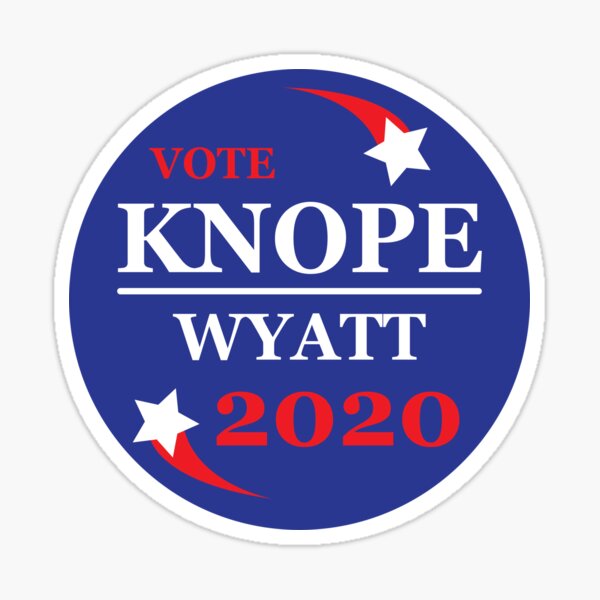
- Teacher: Todd Lochner
- Teacher: Ben Gaskins
- Teacher: John Holzwarth
change, physiological processes that mediate
psychological functioning, processes of human
perception and cognition, approaches to
understanding functional and dysfunctional
personality characteristics of individuals,
counseling and psychotherapy techniques,
application of psychological principles to social
phenomena.
- Teacher: Huda Basharow
- Teacher: Kayla Puente
- Teacher: Jolina Ruckert
change, physiological processes that mediate
psychological functioning, processes of human
perception and cognition, approaches to
understanding functional and dysfunctional
personality characteristics of individuals,
counseling and psychotherapy techniques,
application of psychological principles to social
phenomena.
- Teacher: Huda Basharow
- Teacher: Kayla Puente
Principles underlying behavioral development and
change, physiological processes that mediate
psychological functioning, processes of human
perception and cognition, approaches to
understanding functional and dysfunctional
personality characteristics of individuals,
counseling and psychotherapy techniques,
application of psychological principles to social
phenomena.
- Teacher: Huda Basharow
- Teacher: Kayla Puente
Principles underlying behavioral development and, change, physiological processes that mediate, psychological functioning, processes of human, perception and cognition, approaches to, understanding functional and dysfunctional, personality characteristics of individuals,, counseling and psychotherapy techniques,, application of psychological principles to social, phenomena.
- Teacher: Sarina Saturn
- Teacher: Rachel Takamiya
Principles underlying behavioral development and, change, physiological processes that mediate, psychological functioning, processes of human, perception and cognition, approaches to, understanding functional and dysfunctional, personality characteristics of individuals,, counseling and psychotherapy techniques,, application of psychological principles to social, phenomena.
- Teacher: Kayla Puente
- Teacher: Elena Perrine
- Teacher: Jolina Ruckert
- Teacher: Kayla Puente

- Teacher: Ty Cudd
- Teacher: Ela Gore
- Teacher: Jolina Ruckert
behavior through the lens of film. How cultural
forces and transitions shape worldview, individual
identity and personality, child development,
family structure and dynamics, personal
relationships, social perception, other aspects of
behavior relevant to psychology. Variety of
cultures and cultural influences, theories and
methods in cultural psychology, ways in which
culture shapes film and film reflects and shapes
culture. Does not apply to major requirements.
- Teacher: Yueping Zhang
- Teacher: Todd Watson
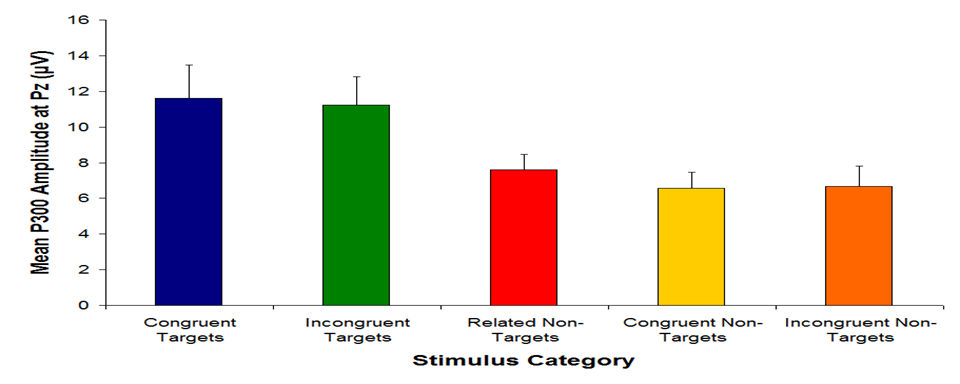
Important Note: You can’t earn credit for BOTH Psy 200 and AP/IB statistics.
- Teacher: Todd Watson
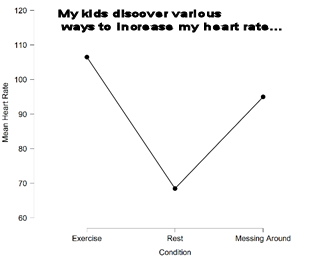
- Teacher: Todd Watson
- Teacher: Todd Watson

Credit may not be earned for both, this course and AP statistics.
- Teacher: Todd Watson

You can't earn credit for both Psy 200 and AP/IB Statistics
- Teacher: Todd Watson

- Teacher: Todd Watson
- Teacher: Erik Nilsen
description of abnormal behaviors; societal
reactions to abnormal behavior; theory and
research on causes, treatments, and prevention of
pathology; major psychopathologies including
physical symptoms and stress reactions; anxiety,
somatoform, and dissociative disorders; sexual
dysfunctions; addictions; sociopathy and other
personality disorders; schizophrenia; mood
disorders.
- Teacher: Christopher Collins
- Teacher: Diana Leonard
- Teacher: Cameryn Nagaji
- Teacher: Erik Nilsen
- Teacher: Lisa Velkoff
Issues in defining abnormality; classification and
description of abnormal behaviors; societal
reactions to abnormal behavior; theory and
research on causes, treatments, and prevention of
pathology; major psychopathologies including
physical symptoms and stress reactions; anxiety,
somatoform, and dissociative disorders; sexual
dysfunctions; addictions; sociopathy and other
personality disorders; schizophrenia; mood
disorders.
- Teacher: Lisa Velkoff

- Teacher: Kate Schoeneman
the ways individuals perceive, influence, and
relate to others. Person perception, the self,
prejudice and stereotyping, social identity,
attitudes and attitude change, conformity,
interpersonal attraction, altruism, aggression,
group processes, intergroup conflict.
- Teacher: Diana Leonard
- Teacher: Cameryn Nagaji
the ways individuals perceive, influence, and
relate to others. Person perception, the self,
prejudice and stereotyping, social identity,
attitudes and attitude change, conformity,
interpersonal attraction, altruism, aggression,
group processes, intergroup conflict.
- Teacher: Diana Leonard
- Teacher: Fardosa Yusuf
- Teacher: Diana Leonard
- Teacher: Diana Leonard
- Teacher: Diana Leonard
- Teacher: Autumn Loporto
- Teacher: Diana Leonard
- Teacher: Megha Viswanathan
- Teacher: Diana Leonard
- Teacher: Diana Leonard
relate to others. Person perception, the self,
prejudice and stereotyping, social identity,
attitudes and attitude change, conformity,
interpersonal attraction, altruism, aggression,
group processes, intergroup conflict.
- Teacher: Julia Heidtke
- Teacher: Diana Leonard
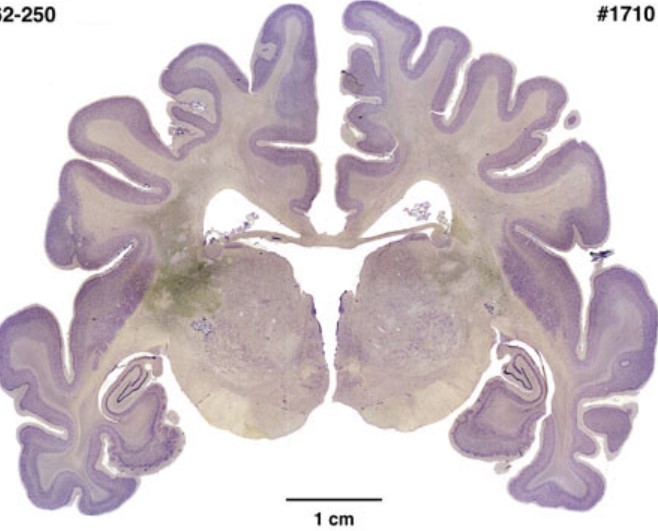
Not open to students with previous credit in PSY 350 or PSY 355.
- Teacher: Todd Watson
We will survey some of the physiological processes that are related to the control of behavior in human and nonhuman species, as well as other biological mechanisms that are relevant to issues in psychology. Specific topics include basic functional neuroanatomy, the structure and function of neurons and neuronal transmission, and the relationship between brain systems and complex behaviors, cognition, and emotions. Neurological, neuropsychological, and psychiatric disorders will also be discussed. In addition to serving as a general survey of the biological aspects of psychology, this course will help prepare students for more advanced study in behavioral and cognitive neuroscience (e.g., Psy 350 and Psy 355).
Students who have received credit for PSY/BIO 252, should not enroll in this course. Not open to, students with previous credit in PSY 350 or PSY 355.
- Teacher: Todd Watson
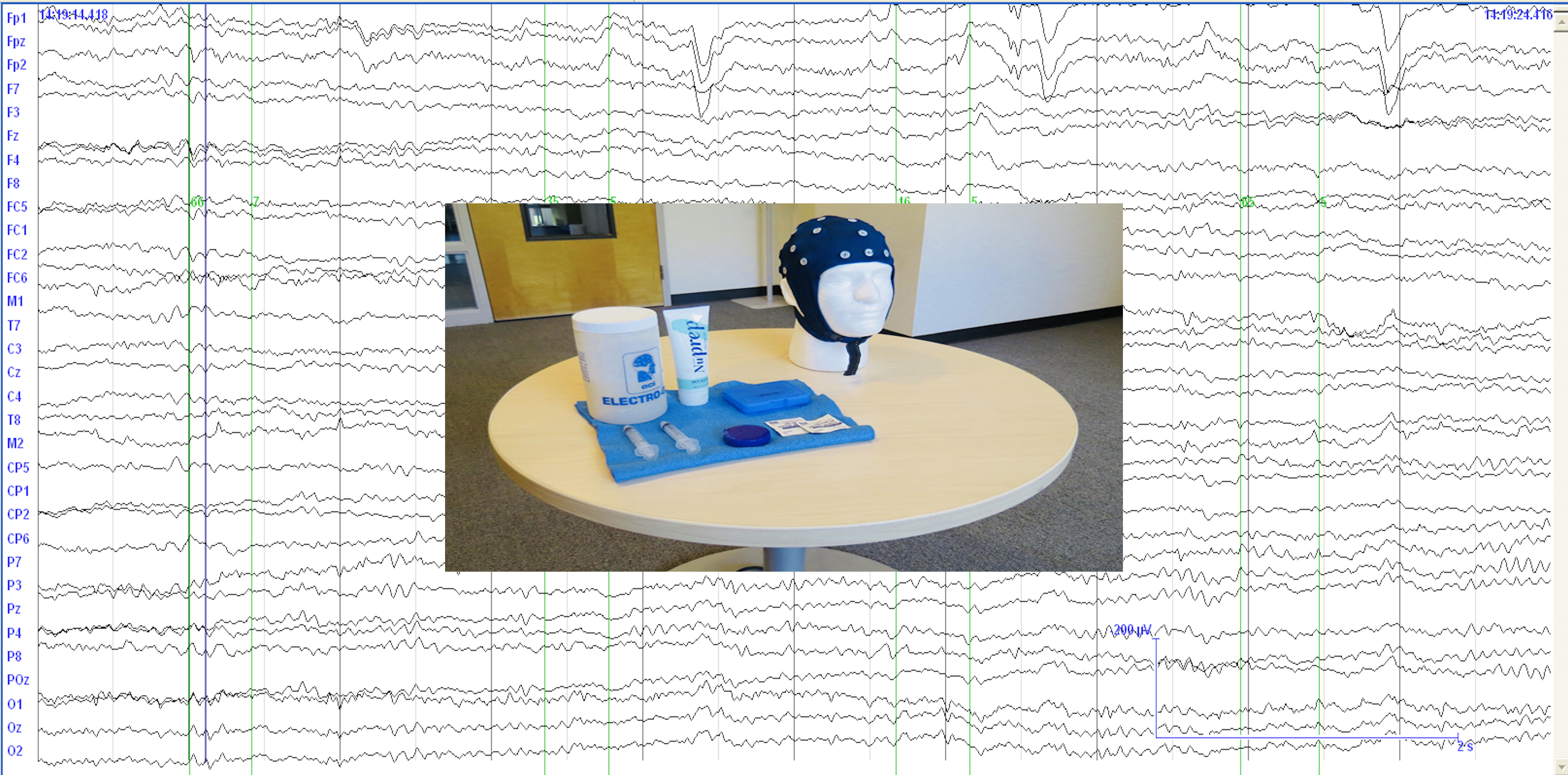
Students who have received credit for PSY/BIO 252, should not enroll in this course. Not open to students with previous credit in PSY 350 or PSY, 355.
- Teacher: Todd Watson
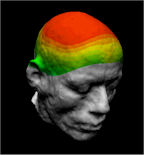
Students who have received credit for PSY/BIO 252, should not enroll in this course. Not open to, students with previous credit in PSY 350 or PSY, 355.
- Teacher: Todd Watson
Note, you cannot receive credit for this course if you have already taken Psy/Bio 252 (Introduction to Neuroscience) or Psy 355 (Cognitive Neuroscience)
- Teacher: Todd Watson

Students who have received credit for PSY/BIO 252, should not enroll in this course. Not open to students with previous credit in PSY 350 or PSY, 355.
- Teacher: Todd Watson
techniques applied to laboratory investigation of
psychological phenomena. Data collected from
laboratory studies analyzed statistically and
reported in technical lab reports. Students are
required to complete an individually written
sophomore thesis and must earn a passing grade on
this assignment in order to pass the course.
- Teacher: Damaris Medina
- Teacher: Alex Nash
- Teacher: Theodore Peterson
- Teacher: Jolina Ruckert
- Teacher: Jennifer Labounty
- Teacher: Alma Mintier-Vegh
- Teacher: Jennifer Labounty
- Teacher: Sara Quiballo
- Teacher: Diana Leonard
- Teacher: Jesse Niebaum
techniques applied to laboratory investigation of
psychological phenomena. Data collected from
laboratory studies analyzed statistically and
reported in technical lab reports. Students are
required to complete an individually written
sophomore thesis and must earn a passing grade on
this assignment in order to pass the course.
- Teacher: Jennifer Labounty
- Teacher: Sara Quiballo
- Teacher: Diana Leonard

- Teacher: Keagan Polentz
- Teacher: Jolina Ruckert
techniques applied to laboratory investigation of
psychological phenomena. Data collected from
laboratory studies analyzed statistically and
reported in technical lab reports. Students are
required to complete an individually written
sophomore thesis and must earn a passing grade on
this assignment in order to pass the course.
- Teacher: Lauren Thompson
- Teacher: Jesse Niebaum
- Teacher: Diana Leonard
explain social influence with a focus on norm
formation, conformity, and deviance. Emphasis on
the role of social identity, leadership, and group
dynamics. Role of norms and minority influence in
health, business, marketing, political and media
contexts, and the ethical considerations of using
norms to influence others.
- Teacher: Diana Leonard
development in areas including physiology,
emotion, cognition, personality, and social
behavior. How psychological processes evolve and
change with age. Emphasis on adolescence through
late adulthood and death.
- Teacher: Kayla Puente
development in areas including physiology,
emotion, cognition, personality, and social
behavior. How psychological processes evolve and
change with age. Emphasis on adolescence through
late adulthood and death.
- Teacher: Jennifer Labounty
- Teacher: Jennifer Labounty
- Teacher: Kayla Puente
development in areas including physiology,
emotion, cognition, personality, and social
behavior. How psychological processes evolve and
change with age. Emphasis on adolescence through
late adulthood and death.
- Teacher: Kayla Puente
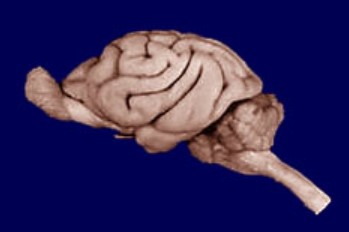
processes and underlying functions of the nervous
system. Biological bases of sensation, perception,
motivation, emotion, learning, memory,
psychopathology. Laboratory sections supplement
lectures and readings with practical experience in
neural anatomy, animal (rat) behavioral testing,
and neuropsychological testing. Seniors will be
given registration preference during the first
round of registration.
- Teacher: Christopher Collins
- Teacher: Diana Leonard
- Teacher: Todd Watson
- Teacher: Yueping Zhang
- Teacher: Yueping Zhang
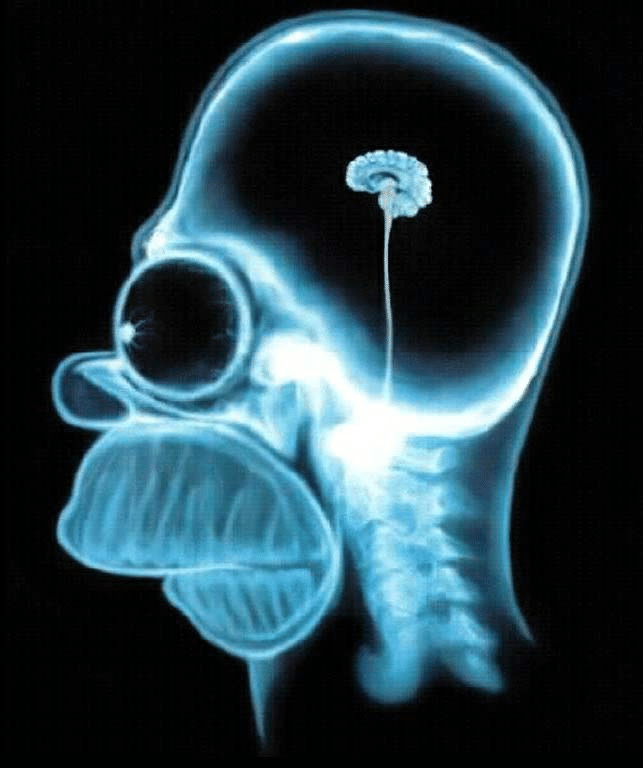
- Teacher: Todd Watson
- Teacher: Todd Watson

- Teacher: Todd Watson
- Teacher: Todd Watson
- Teacher: Todd Watson

- Teacher: Todd Watson
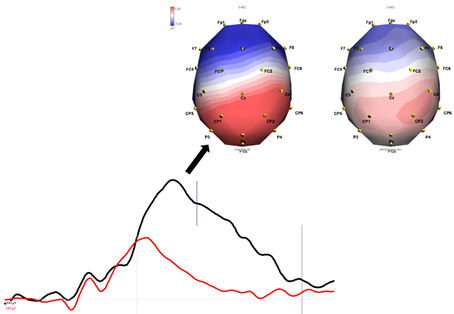
- Teacher: Todd Watson
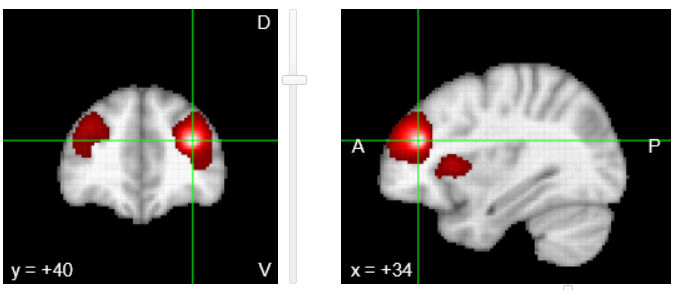
- Teacher: Todd Watson
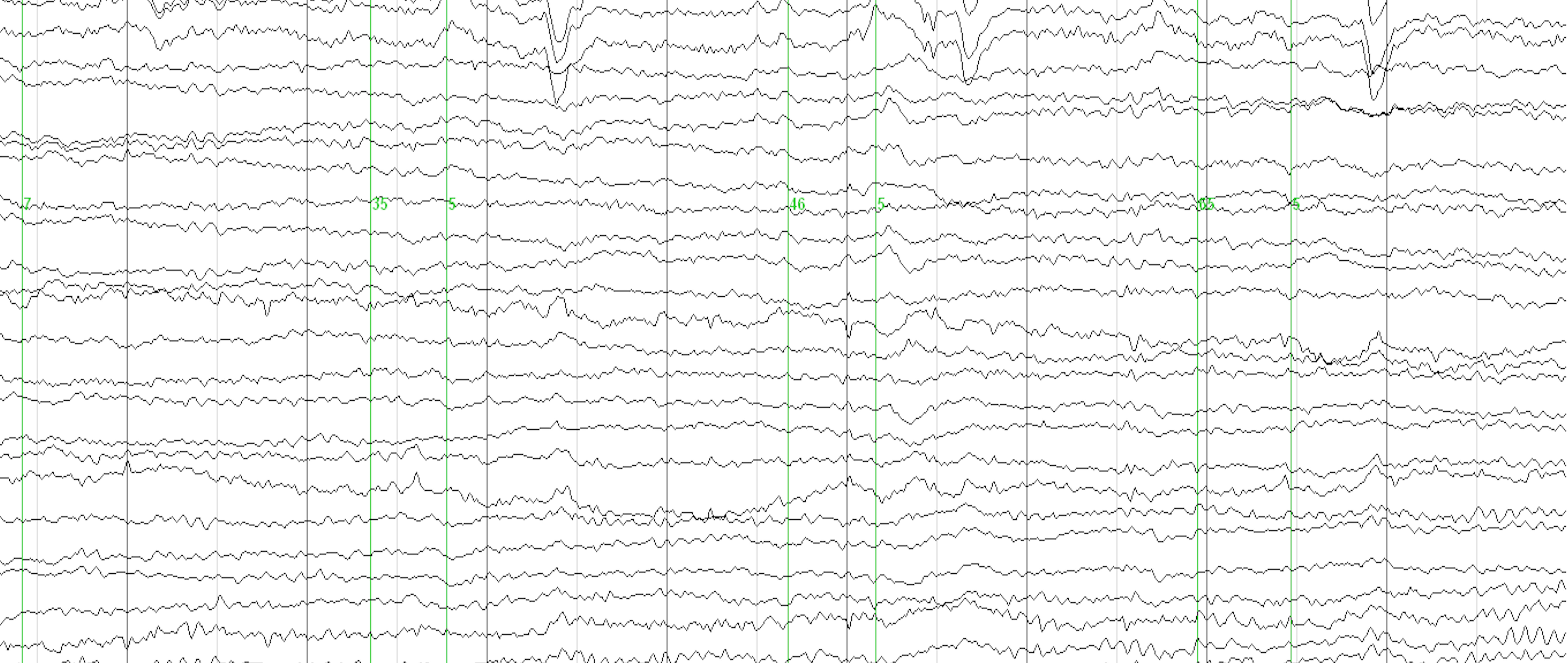
- Teacher: Todd Watson
of females, their attitudes, values, behaviors,
and self-image. Alternative models for increasing
gender-role flexibility and allowing all humans to
explore their full potential. Research
methodology, changing roles, androgyny, gender
schema, extent and validity of gender differences.
Influence of culture, socialization, and
individual differences on women and men.
Relationship between the psychology of gender and
principles of feminism.
- Teacher: Irene Hilman
- Teacher: Jolina Ruckert
- Teacher: Hazel Wilton-Green
of females, their attitudes, values, behaviors,
and self-image. Alternative models for increasing
gender-role flexibility and allowing all humans to
explore their full potential. Research
methodology, changing roles, androgyny, gender
schema, extent and validity of gender differences.
Influence of culture, socialization, and
individual differences on women and men.
Relationship between the psychology of gender and
principles of feminism.
- Teacher: Jolina Ruckert
Examination of topics in psychology from a
multicultural, multiethnic perspective, with
special emphasis on cultural influence on research
methods, self-concept, communication, emotion,
social behavior, development, mental health.
Cultural variation, how culture shapes human
behavior, and psychological theories and practices
in different cultures.
- Teacher: Nichole Champion
- Teacher: Diana Leonard
- Teacher: Yueping Zhang
psychology. Central theoretical, empirical,
practical issues of each topic. May be taken twice
for credit with change of topic.
- Teacher: Kayla Puente
psychology. Central theoretical, empirical,
practical issues of each topic. May be taken twice
for credit with change of topic.
- Teacher: Kayla Puente

- Teacher: Jesse Niebaum
- Teacher: Todd Watson
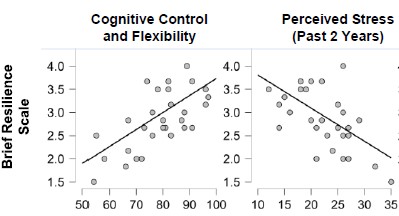
- Teacher: Todd Watson
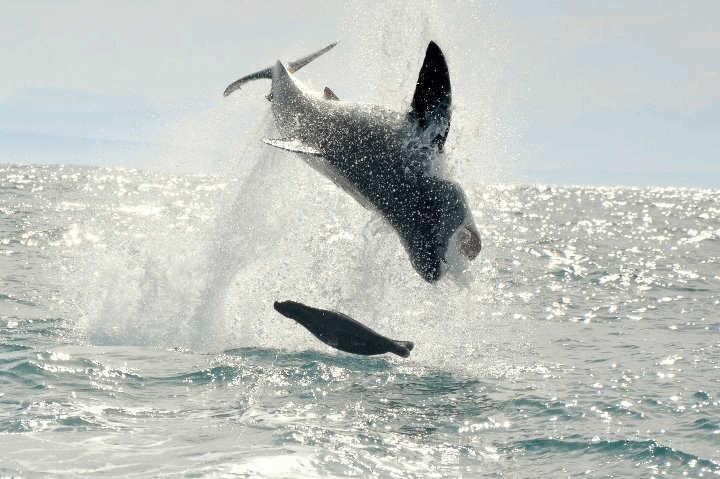
principles to real-world problems and issues in
sustainability resilience. In-depth examination of
topics such as health, child development,
environmental philosophy, social cognition,
environmental morality, environmental justice,
activism, and climate resilience studied from a
psychological perspective. Intensive 400-level
capstone course with an applied psychological
focus. Exploration of how local concerns can be
addressed with practical and achievable solutions.
- Teacher: Jolina Ruckert

- Teacher: Jolina Ruckert
- Teacher: Jolina Ruckert
Project-based exploration of the processes for
creating technologies that expand human capability
(functionality) while adapting to the abilities of
users (usability). HCI topics including cognition,
perception, personality, learning, and motivation,
as well as social, developmental, abnormal, and
educational psychology studied from a
psychological perspective. Primary source
materials from the fields of psychology, computer
science, and allied disciplines.
- Teacher: Erik Nilsen
- Teacher: Erik Nilsen
- Teacher: Erik Nilsen
- Teacher: Jennifer Labounty

psychologically oriented occupations. Building
human relations skills; becoming acquainted with
important human service institutions and their
social impact. Theoretical and practical
frameworks for intervention.
- Teacher: Jolina Ruckert
- Teacher: Jennifer Labounty
- Teacher: Jolina Ruckert
- Teacher: Jolina Ruckert
- Teacher: Diana Leonard
- Teacher: Diana Leonard
- Teacher: Janet Davidson
- Teacher: Brian Detweiler-Bedell
- Teacher: Jerusha Detweiler-Bedell
- Teacher: Jennifer Labounty
- Teacher: Diana Leonard
- Teacher: Erik Nilsen
- Teacher: Thomas Schoeneman
- Teacher: Todd Watson
- Teacher: Yueping Zhang

- Teacher: Jessica Starling

- Teacher: Jessica Starling
of the Civil War to the present day, emphasizing
the interaction between America's many religions
and emerging American modernity. The fate of
"traditional" religion in modern America;
"alternate" American religious traditions;
urbanization, industrialism, and religion;
science, technology, and secularism;
evangelicalism, modernism, and fundamentalism;
religious bigotry; pluralism; new religions and
neofundamentalism.
- Teacher: Susanna Morrill
- Teacher: Susanna Morrill
- Teacher: Paul Powers
- Teacher: Paul Powers
- Teacher: Daniel Kimmel
- Teacher: Jessica Starling
- Teacher: Paul Powers
various manifestations of mysticism and religious
experience in different contexts and traditions.
Includes classical and current theories of the
nature of mysticism and its relation to asceticism
and other aspects of religious belief and
practice, drawing on sociology, anthropology,
psychology, philosophy, and cognitive science.
Interrogation of the nature and epistemological
status of experience. Numerous case studies,
including sustained attention to Sufism, the
Islamic mystical tradition. This course is
cross-listed with RELS 458. Students taking the
300-level version of this course will complete a
guided research project, identifying and mastering
the range of scholarly positions on a theme,
critical issue, or essential primary text, and
will produce a technically sound research paper.
The course can only be taken once and cannot be
repeated at the 400 level.
- Teacher: Paul Powers
various manifestations of mysticism and religious
experience in different contexts and traditions.
Includes classical and current theories of the
nature of mysticism and its relation to asceticism
and other aspects of religious belief and
practice, drawing on sociology, anthropology,
psychology, philosophy, and cognitive science.
Interrogation of the nature and epistemological
status of experience. Numerous case studies,
including sustained attention to Sufism, the
Islamic mystical tradition. This course is
cross-listed with RELS 358. Students taking the
400-level version of this course will complete a
more comprehensive research paper, defending an
original thesis and offering critical judgments of
relevant arguments and evidence. The course can
only be taken once and cannot be repeated at the
300 level.
- Teacher: Paul Powers
consultation with faculty, selection of a thesis
topic and further reading in the discipline and
research in the topic area. Substantial written
document demonstrating mastery of theory and
methodology in the study of religion and the
ability to integrate these into the thesis topic.
- Teacher: Susanna Morrill
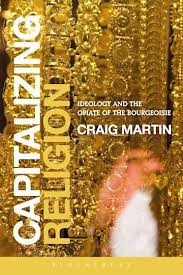
- Teacher: Jessica Starling
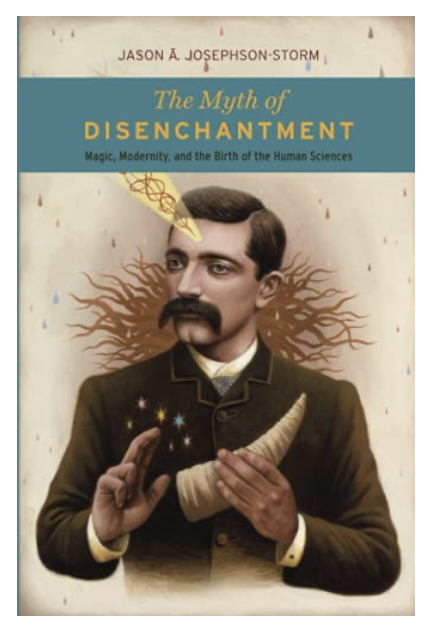
- Teacher: Jessica Starling
consultation with faculty, selection of a thesis
topic and further reading in the discipline and
research in the topic area. Substantial written
document demonstrating mastery of theory and
methodology in the study of religion and the
ability to integrate these into the thesis topic.
- Teacher: Susanna Morrill
- Teacher: Melanie Kohnen
- Teacher: Melanie Kohnen
implications of digital technology and innovation
on cultural expression, media storytelling,
democracy, globalization, and news gathering and
dissemination. New media theory and investigation
of meaning, knowledge, and power related to
digital technologies. Investigation of the nature
of production of consumption and active audiences.
- Teacher: Melanie Kohnen
- Teacher: Bryan Sebok
- Teacher: Mitch Reyes
- Teacher: Mitch Reyes
- Teacher: Tatiana Osipovich
- Teacher: Danielle Torres
- Teacher: Danielle Torres
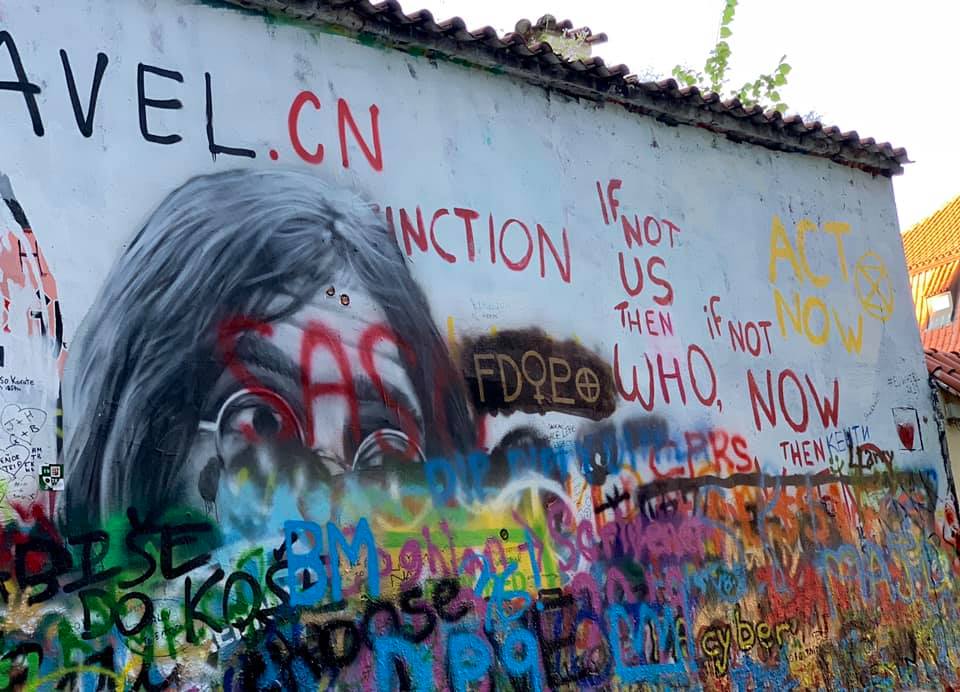
- Teacher: Tamara Tribitt

- Teacher: Tamara Tribitt
- Teacher: Danielle Torres

- Teacher: Tamara Tribitt
- Teacher: Danielle Torres
- Teacher: Danielle Torres
- Teacher: Danielle Torres

- Teacher: Tamara Tribitt
- Teacher: Danielle Torres

diverse communities as identified by race,
ethnicity, gender, class, sexual orientation, age,
disability, or religion. Addresses methods for
positively impacting social and cultural diversity
and equity issues including the possible effects
of culture, race stereotyping, family,
socioeconomic status, gender, sexual identity,
language, and values on student development and
progress in the school setting. Content and
methodology emphasize small-group activities,
collaboration, and use of data to create equity
for all students. Candidates practice taking an
active role in supporting all students and focus
on eliminating the achievement gap.
- Teacher: Tamara Tribitt
- Teacher: Rafe McCullough
- Teacher: Rafe McCullough
- Teacher: Danielle Torres
- Teacher: Danielle Torres
- Teacher: Danielle Torres
- Teacher: Danielle Torres
- Teacher: Danielle Torres
- Teacher: Danielle Torres
- Teacher: Danielle Torres
- Teacher: Danielle Torres
- Teacher: Danielle Torres
- Teacher: Danielle Torres
- Teacher: Danielle Torres
- Teacher: Danielle Torres
- Teacher: Danielle Torres
- Teacher: Danielle Torres
- Teacher: Liza Finkel
- Teacher: Liza Finkel
- Teacher: Liza Finkel
- Teacher: Alfonso Garcia Arriola
This short exam for graduating biology majors will help the department assess the effectiveness of our current curriculum.
- Teacher: Paulette Bierzychudek
- Teacher: Kenneth Clifton
- Teacher: Greg Hermann
- Teacher: Sarah Warren
- Teacher: Sidra Kamran

- Teacher: Bruce Podobnik
- Teacher: Maryann Bylander
- Teacher: Maryann Bylander
society is organized and operates; the
relationship between social institutions and the
individual; sources of conformity and conflict;
the nature of social change.
- Teacher: Sarah Warren

- Teacher: Bruce Podobnik
- Teacher: Maryann Bylander
society is organized and operates; the
relationship between social institutions and the
individual; sources of conformity and conflict;
the nature of social change.
- Teacher: Jadee Carathers
- Teacher: Sarah Warren
FALL 2021: SOAN 110-01 INTRODUCTION TO CULTURAL ANTHROPOLOGY
MWF @ 9:10 – 10:10am, Miller Center, Room 205
COURSE INTRO: Anthropology is a four-field discipline, but cultural anthropology is the study of lived human experience as it is represented in and by symbolic, material, and virtual culture. Anthropologists, attend closely to everyday relationships between individuals and their immediate communities. Yet, we also study culture in the context of globalization because few individuals or particular cultural formations are isolated (or ever have been!) from broader political, market, and technological shifts. We have some standard and evolving methodological tools to facilitate our research and involvements in . Thus, anthropologists also study the varied forms of structural power that marshal the world’s inhabitants—human and otherwise—into complex networks! Our pace for this class is moderate.
- Teacher: Kim Cameron-Dominguez
- Teacher: Kabir Heimsath
- Teacher: Kim Cameron-Dominguez
- Teacher: Sepideh Bajracharya
systems of meanings and values through which
people orient and interpret their experience. The
nature of ethnographic writing and interpretation.
- Teacher: Sepideh Bajracharya
- Teacher: Kabir Heimsath
- Teacher: Kabir Heimsath
- Teacher: Kabir Heimsath
- Teacher: Kim Cameron-Dominguez
- Teacher: Sidra Kamran

- Teacher: Bruce Podobnik
- Teacher: Sidra Kamran
foundation for the design of concrete research
projects in sociology and anthropology.
Exploration of philosophies, ethics, and
epistemologies associated with qualitative and
quantitative research. Methods include participant
observation, interviewing, surveys, statistical
analysis, and textual interpretation.
Conceptualization, development, and writing of
effective research proposals.
- Teacher: Sidra Kamran
- Teacher: Sarah Warren
- Teacher: Kabir Heimsath
- Teacher: Oren Kosansky
- Teacher: Kabir Heimsath
- Teacher: Sepideh Bajracharya
- Teacher: Sepideh Bajracharya
- Teacher: Sepideh Bajracharya
theoretical and ethnographic topics in the
subfield of medical anthropology. Each semester
will explore a given topic (e.g., structural
violence, intersectionality, kinship and care,
death and dying, body and pain, addiction,
pharmaceuticalization, medical techniques and
technologies, illness narratives). Particular
emphasis on how subjective and phenomenological
experiences of illness shape and are shaped by
structural (sociocultural, political, historical,
physical, material) contingencies. Students will
engage in a semester-long ethnographic project.
Topics will always be health-studies-related.
- Teacher: Sepideh Bajracharya
- Teacher: Kabir Heimsath
- Teacher: Maryann Bylander
- Teacher: Kabir Heimsath
- Teacher: Maryann Bylander
- Teacher: Kim Cameron-Dominguez
- Teacher: Kabir Heimsath
- Teacher: Kabir Heimsath
- Teacher: Sarah Warren
- Teacher: Sarah Warren
- Teacher: Jesse Erwin
- Teacher: Jennifer Twyford
functions of school psychologists. Readings in
contemporary issues and historical events provide
the foundation for graduate preparation in school
psychology. Students observe the work of school
psychologists and discuss the profession in a
seminar format. This course is a practicum in
school-based systems, and includes overviews of
the theories and practices for school-based
emotional, behavioral, social, and academic
change.
- Teacher: Jennifer Twyford
- Teacher: Jennifer Twyford
A Colloquium is an academic seminar on a broad, field of study, usually led by a different, lecturer at each meeting. This Colloquium will be, focused on the broad field of School Psychology,, and all candidates across all three cohorts of, the school psychology program are required to, attend in order to address, together, relevant, topics of the profession that concern us all. The, Colloquium meets four times per academic year,, with a different topic as the focus for each, meeting. These four topics include: 1) Issues in, Practicum and Internship Supervision; 2), Variations of the Practice of School Psychology;, 3) Alumni Relations and Mentorship; and 4), Cross-Professional Collaboration. The School, Psychology Colloquium challenges school, psychology candidates to address issues of, concern across all three cohorts while, simultaneously providing mentorship across these, cohorts through conversation, guidance, and, shared information. Course goals for participants, include: a. Engaging with the data, research and, theory regarding topics of shared concern in the, field of school psychology b. Gaining an, understanding of the practices of mentorship,, supervision and on-going professional development, in the field of school psychology c. Gaining an, understanding of the variation and different, forms of practice within the field of school, psychology at the local, national and, international level. d. Engaging with related, professionals in the field of education regarding, topics of shared concern in an effort to better, differentiate and integrate as working, professionals.
- Teacher: Elena Diamond
- Teacher: Kate Jaspers
- Teacher: Peter Mortola
A Colloquium is an academic seminar on a broad, field of study, usually led by a different, lecturer at each meeting. This Colloquium will be, focused on the broad field of School Psychology,, and all candidates across all three cohorts of, the school psychology program are required to, attend in order to address, together, relevant, topics of the profession that concern us all. The, Colloquium meets four times per academic year,, with a different topic as the focus for each, meeting. These four topics include: 1) Issues in, Practicum and Internship Supervision; 2), Variations of the Practice of School Psychology;, 3) Alumni Relations and Mentorship; and 4), Cross-Professional Collaboration. The School, Psychology Colloquium challenges school, psychology candidates to address issues of, concern across all three cohorts while, simultaneously providing mentorship across these, cohorts through conversation, guidance, and, shared information. Course goals for participants, include: a. Engaging with the data, research and, theory regarding topics of shared concern in the, field of school psychology b. Gaining an, understanding of the practices of mentorship,, supervision and on-going professional development, in the field of school psychology c. Gaining an, understanding of the variation and different, forms of practice within the field of school, psychology at the local, national and, international level. d. Engaging with related, professionals in the field of education regarding, topics of shared concern in an effort to better, differentiate and integrate as working, professionals.
- Teacher: Elena Diamond
- Teacher: Jennifer Twyford
- Teacher: Elena Diamond
- Teacher: Elena Diamond
- Teacher: Elena Diamond
Didactic class instruction, practicum placement,, and clinical training related to work as a, professional school psychologist. Covers the, application of psychological therapies with, children, adolescents, and families in educational, settings, as well as skills involved in collecting, data for consultation and assessment at the, practicum site. Foci will include the development, and application of diversity awareness and, knowledge including systems of power and, privilege; awareness of one's own beliefs, biases,, and prejudices; and methods/skills for working, with those who are diverse in culture, race,, ethnicity, gender, age, sexual orientation, or, physical or mental ability. In weekly seminars,, students review research, theory, and practice., Students also present audio and/or video, recordings of their counseling for supervisory, review.
- Teacher: Elena Diamond
- Teacher: Colleen Hanson
- Teacher: Elena Diamond
- Teacher: Elena Diamond
- Teacher: Elena Diamond
- Teacher: Cynthia Panko
- Teacher: Akanee Siyufy
- Teacher: Mariana Rocha
may obtain a course description from the
department office or website.
- Teacher: Cynthia Panko
functions of school psychologists. Readings in
contemporary issues and historical events provide
the foundation for graduate preparation in school
psychology. Students observe the work of school
psychologists and discuss the profession in a
seminar format. This course is a practicum in
school-based systems, and includes overviews of
the theories and practices for school-based
emotional, behavioral, social, and academic
change.
- Teacher: Jennifer Twyford
- Teacher: Jennifer Twyford
- Teacher: Blythe Knott
- Teacher: Nicole Schneider
- Teacher: Kaitlin Sommerfeld
- Teacher: Yueping Zhang
This is a Moodle course shell for a question bank.
- Teacher: Sidra Kamran
language. Explores the methodology linguists use
to investigate language, as well as the ways in
which language study interacts with other
disciplines. The structures underlying individual
languages, language families, and human language
generally. The degree to which language is shaped
by the society in which it is used, how it
changes over time, and its complex relationship
to the human brain. Readings and firsthand
investigation.
- Teacher: Catherine Sprecher Loverti

- Teacher: Kate Schoeneman

- Teacher: Kate Schoeneman